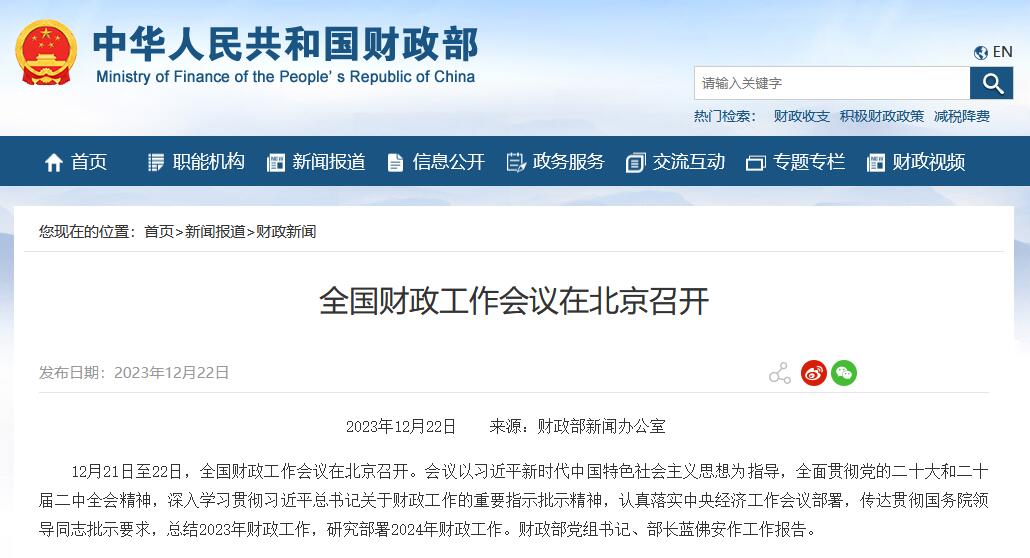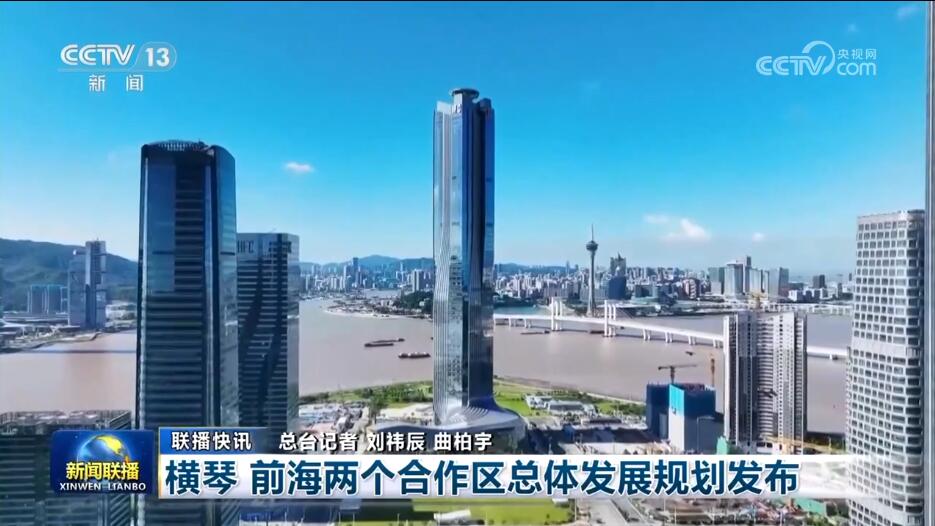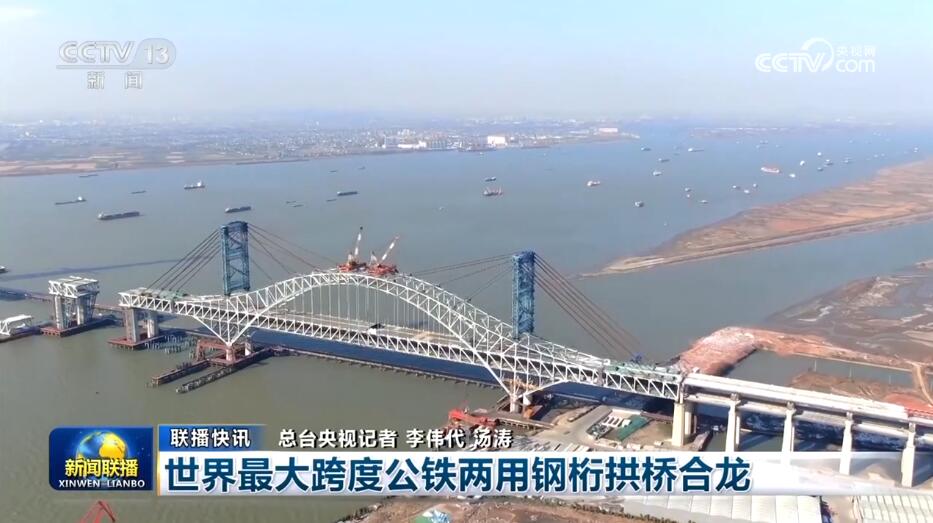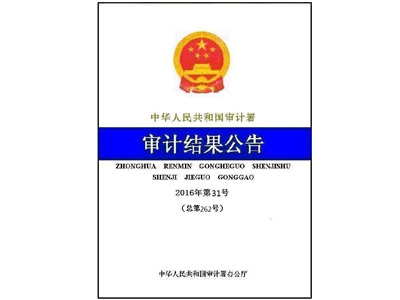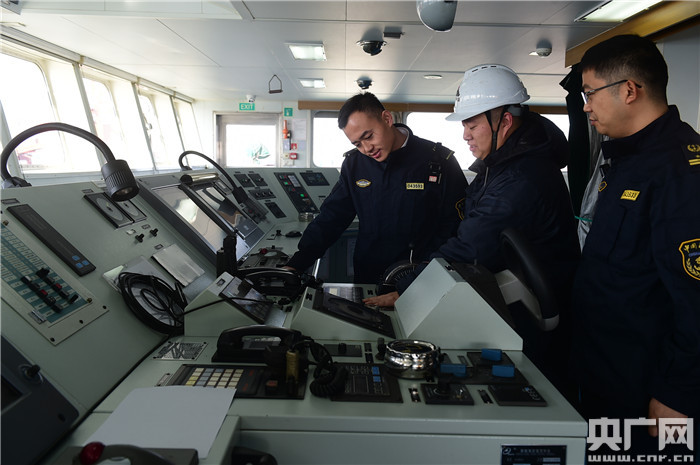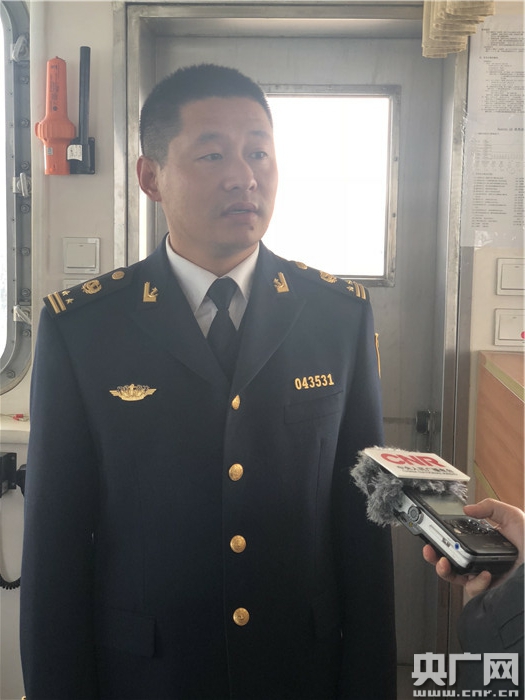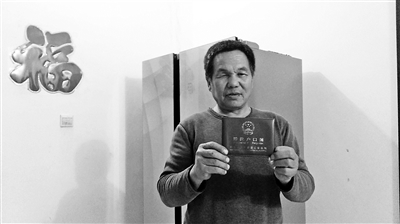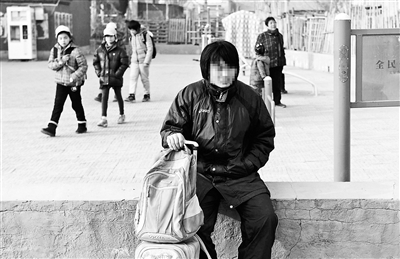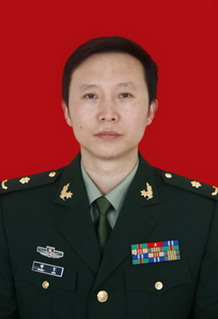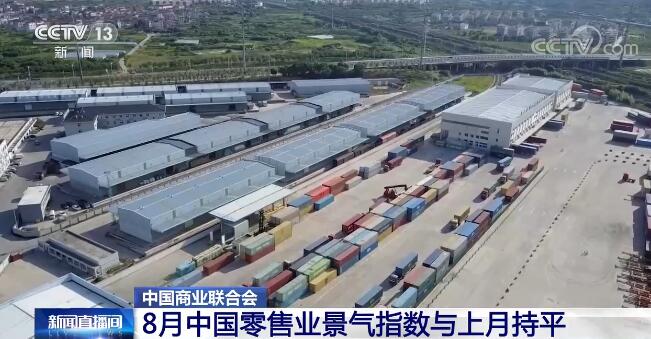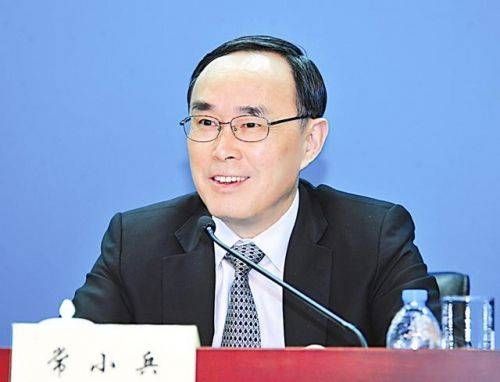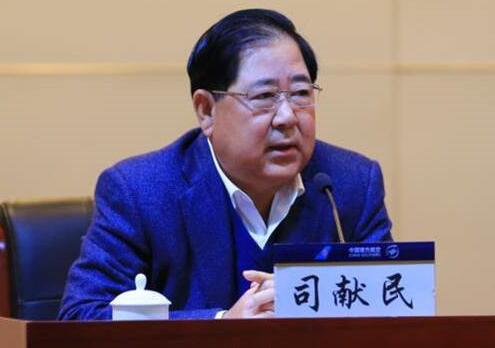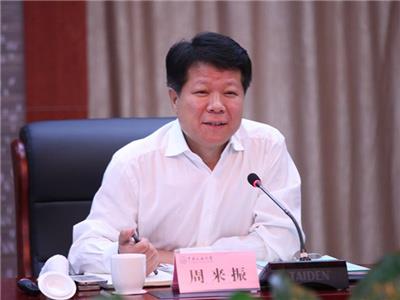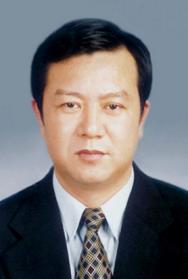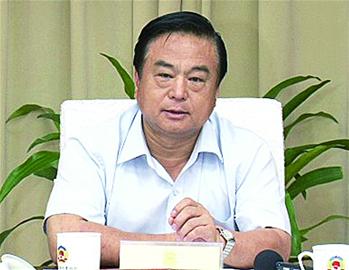Jiangsu has added 16 national-level non-legacy projects! How much do you know about these "national names"? Xiao Xiaosu said

Intangible heritage is the "living" soul of traditional culture, a precious memory of national traditional culture, bearing cultural awareness and national spirit. Jiangsu is one of the cradles of ancient civilization in China, with numerous intangible cultural heritages. Recently, the State Council announced the fifth batch of national intangible cultural heritage representative projects and expanded projects, and 16 projects including Jiangsu Nanzha Folk Song and Taixing Flower Drum were selected. (Please poke the directory for details > >)
How much do you know about these non-legacy projects? Feel their charm with Xiao Su!
| The Fifth Batch of National Intangible Heritage Representative Projects in Jiangsu Province
Huaian: Nanzha Folk Songs
Nanzha folk song is a traditional folk song in Jiangsu Province. Nanzha Town is located in the southwest border of Chuzhou District, Huai ‘an City, with the Grand Canal in the east and Baima Lake in the vicinity. It has beautiful scenery and rich humanities. It is not only full of the cultural charm of the Beijing-Hangzhou Canal, but also rich in rich and high-quality local folk songs. Nanzha folk songs born of the canal originated from this place.
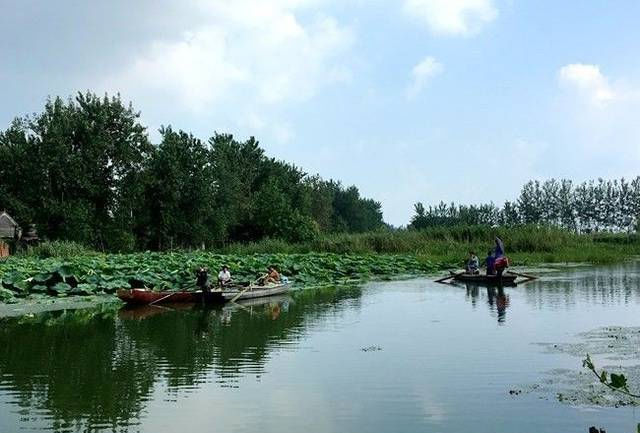
According to historical records, Nanzha folk songs were well-known in the Tang Dynasty. Nanzha folk songs, based on their rich rhyme of water and countryside, have formed euphemistic, slow and lyrical singing features and singing forms such as competition and duet, and more than 500 songs have been circulated so far.Covering folk music, folk literature and folk culture, it is rich in content, beautiful in melody, widely sung and well protected, and is known as the "living fossil of folk traditional music". As early as 2009, Nanzha folk songs were listed as provincial intangible cultural heritage projects.
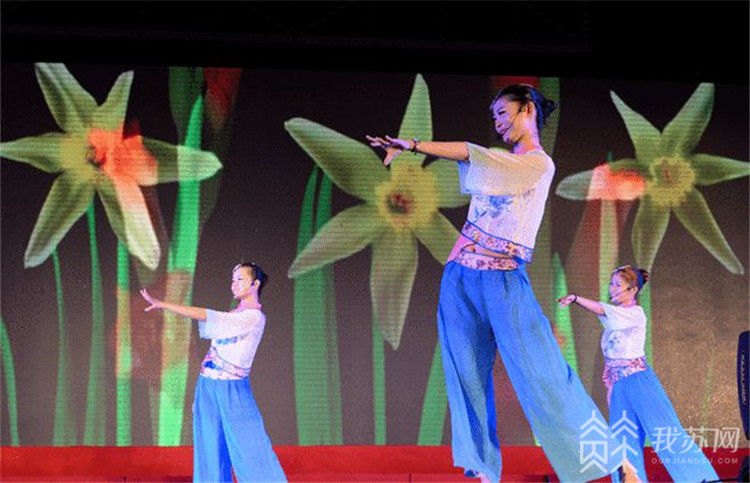
Taizhou: Taixing Flower Drum
Taixing Flower Drum originated from Qinjialou, Nansha Township, Guangling District, Taixing County, according to Mingzhai Zhenshi • It has a history of three or four hundred years. Taixing Flower Drum can not only perform dance alone, but also sing while dancing. Whether it is the dance itself, the tune or the lyrics, it has a complete and mature structure, unique style, self-contained and extremely local characteristics.
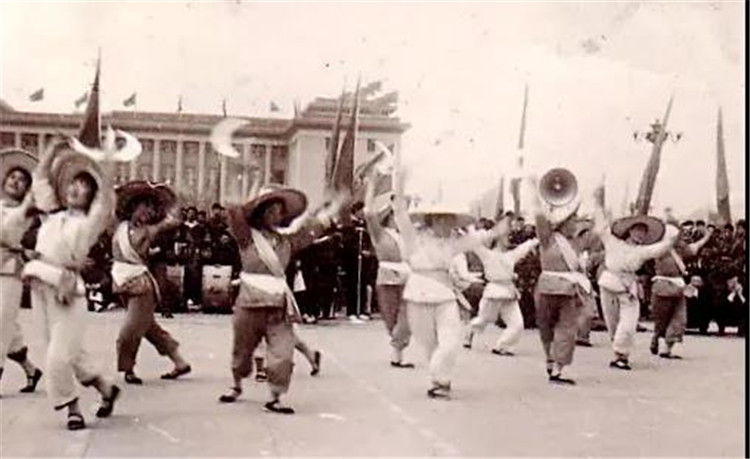
Taixing Flower Drum is sung in Taixing dialect, and the lyrics are not fixed. In order to avoid monotonous repetition, some lyrics are often made up and filled into the song, or some humorous and witty songs are sung to enliven the atmosphere and please the audience. The dance steps and movements of Taixing Flower Drum are large, flexible and funny. The dance steps include "Three Steps Upside Down", "Magpie Climbing the Plum Step" and "Jade Rabbit Yue Bai Step". Among them, "Three Steps Upside Down" and "Magpie Climbing the Plum Step" are not found in other folk dances. In particular, the "three-step", the foot shaking and the waist twisting and knees bending, is very rhythmic, showing the simple, kind, optimistic and cheerful personality of Taixing people. In 2009, it was listed as a non-legacy protection project in Jiangsu Province.
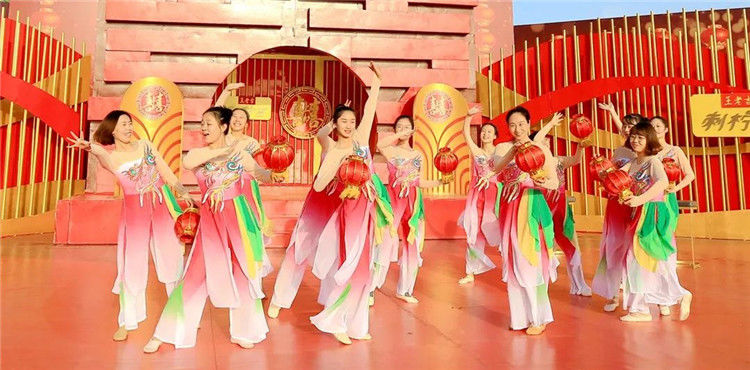
Suqian: Subei Drum
Subei Drum is a form of rap music based on Suqian dialect, commonly known as "singing big books". The form of expression is a big drum and two crescent plates. Talk and sing, and pay equal attention to rap. His lyrics are rigorous, including cross sentences, seven sentences, five sentences and three sentences. To put it bluntly, pay attention to drinking, eating, being slow and anxious, with symmetrical upper and lower sentences and vigorous singing. The long representative works are Gao Huaide’s Soldiers Going Down to Hedong, A Loyal Luo Family General, and the short representative works are Yu Ji’s Ci Chu, Aunt’s Pledge, Giving Sheep, Flying Kite, etc.
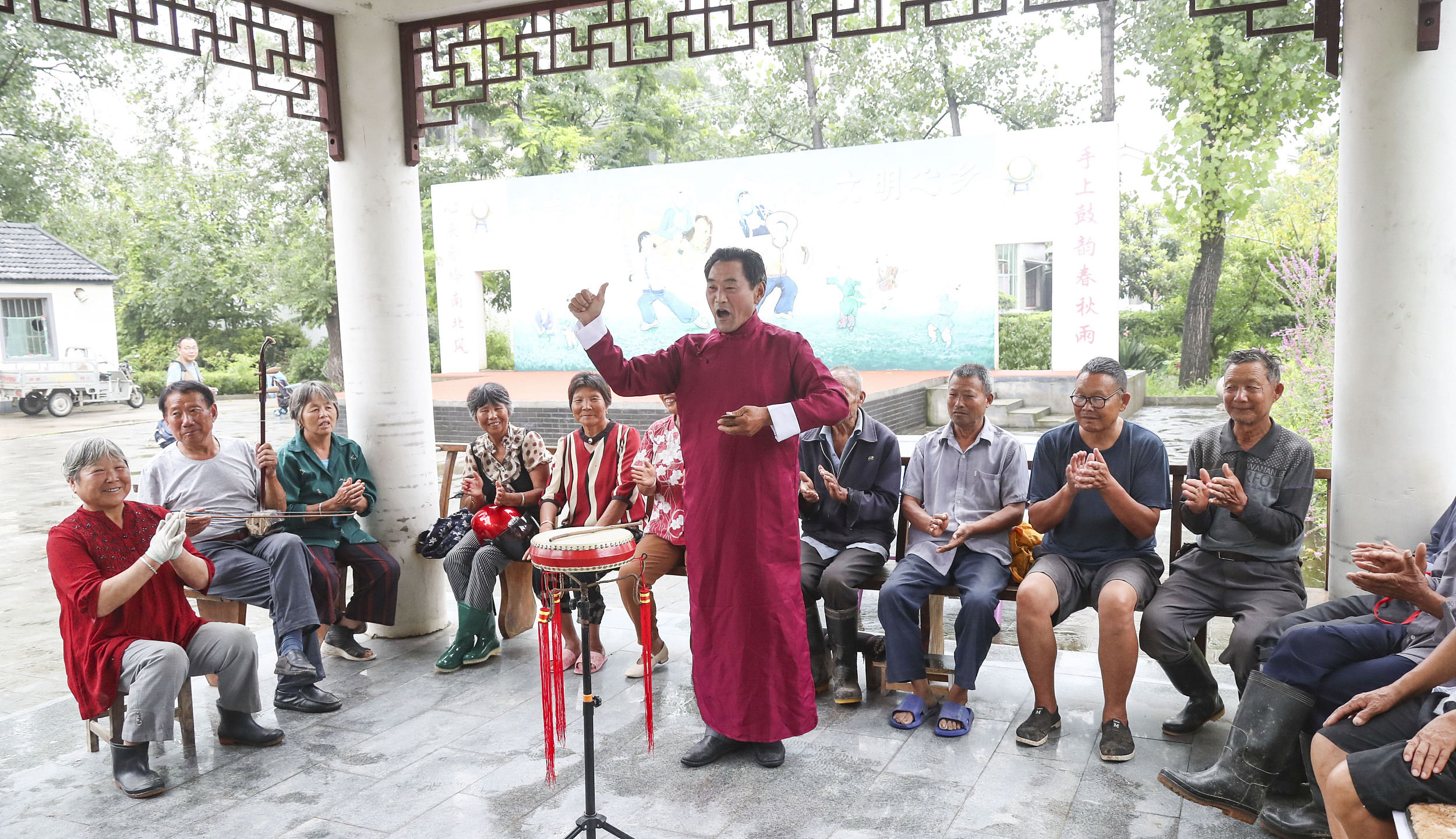
Northern Jiangsu Drum was formed in the middle of Qing Dynasty, and it was recorded in detail in China Quyi Zhi. Mainly distributed in Suqian, Jiangsu, Suining, Pizhou and other areas along the Beijing-Hangzhou Grand Canal, and then extended to Huai ‘an, Lianyungang and other surrounding areas. Northern Jiangsu drum works have won many national and provincial awards such as Peony Award nomination award, Wenhua Award, Five-Star Project Award and Luhua Award.
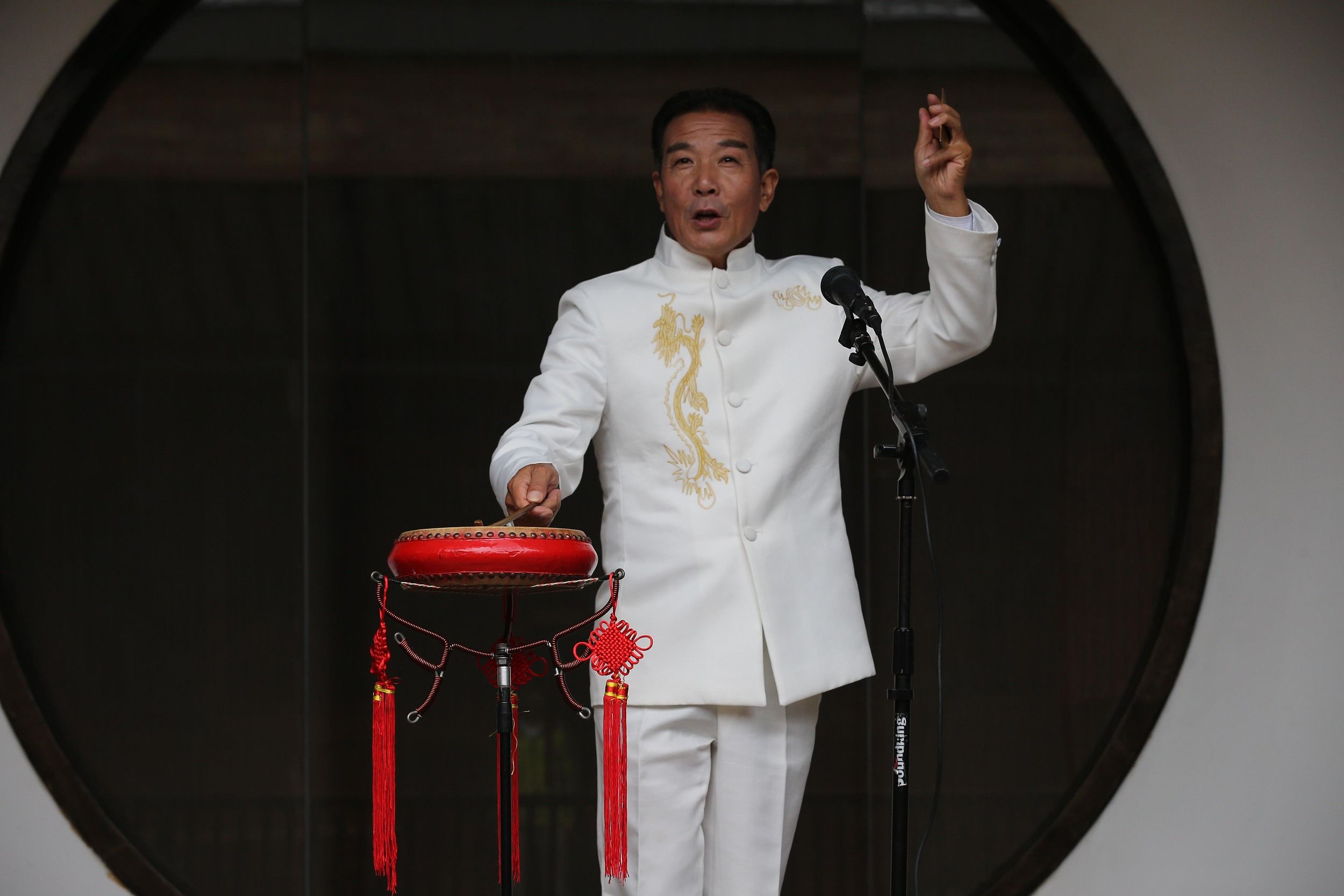
Yancheng: Hair Embroidery (Dongtai Hair Embroidery)
Dongtai Hair Embroidery, formerly known as Ink Embroidery, is made of silk as the base, embroidery needle as the pen, and selected girls’ natural hair as the embroidery thread. Compared with other embroidery crafts, hair embroidery is a comprehensive art with unique materials, corrosion resistance, strong texture, never fading, simple and elegant, pale and beautiful, natural color, involving books, paintings, printing, embroidery, engraving and many other fields. In 2007, Dongtai was named as "the hometown of hair embroidery art in Dongtai, China" by China Folk Writers Association. The Ministry of Culture has twice named "Dongtai Hair Embroidery" as the hometown of folk art.
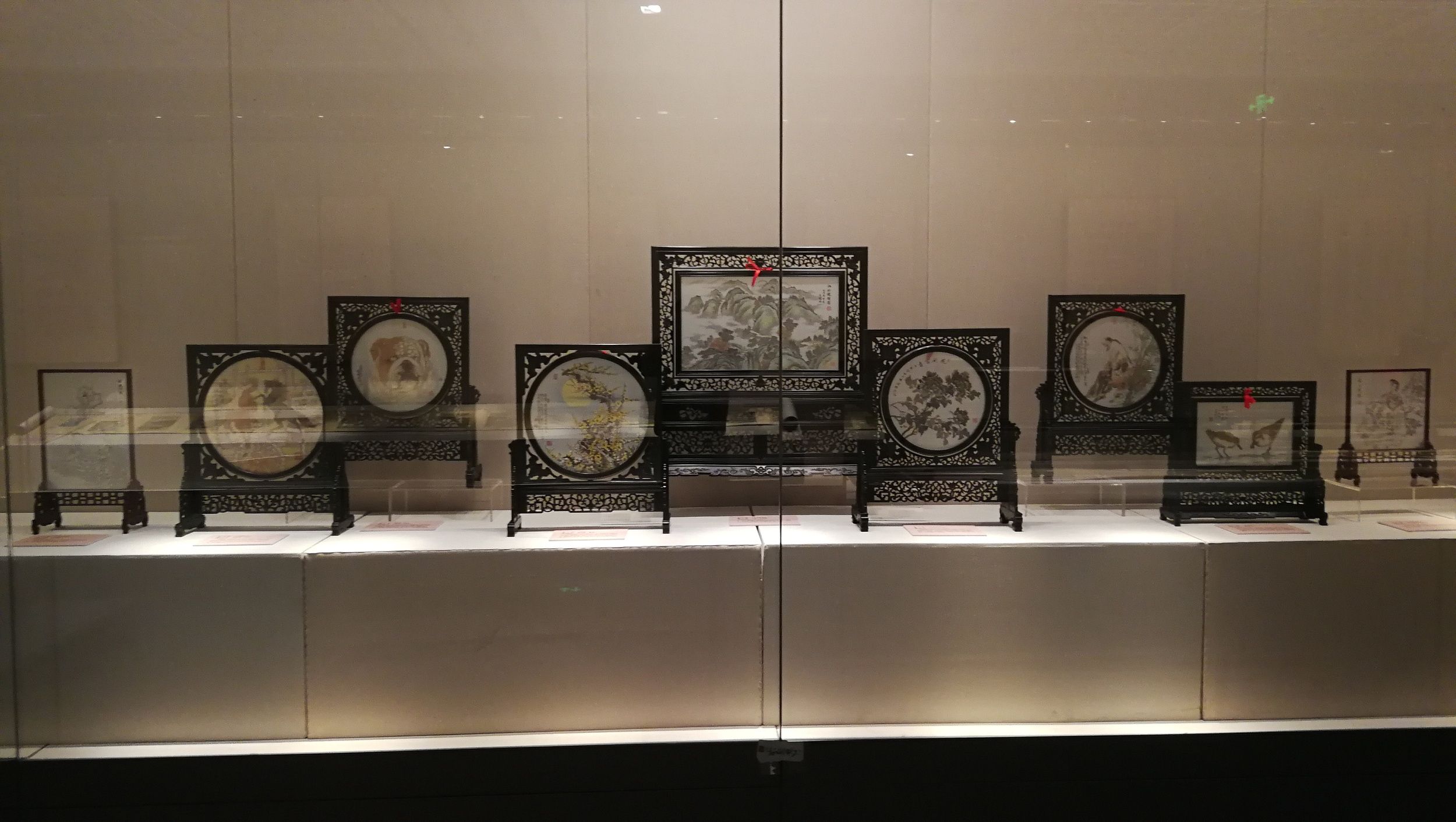
Dongtai hair embroidery originated in the Tang Dynasty with a history of more than 1300 years. Through the inheritance and innovation of outstanding hair embroidery craftsmen in the past dynasties, the variety has developed from the original ink embroidery to touch-up embroidery, Shuang Mianxiu embroidery and double-sided embroidery with different colors, which further improves the viewing effect and enhances the appeal of the works. On the basis of inheriting the traditional needling methods, more than 30 kinds of needling methods, such as rolling, spinning, winding and sleeving, are expanded, which are used flexibly according to different works, making the shades, wet and dry, distance and depth of the works more natural and enriching the expressive force of hair embroidery works.
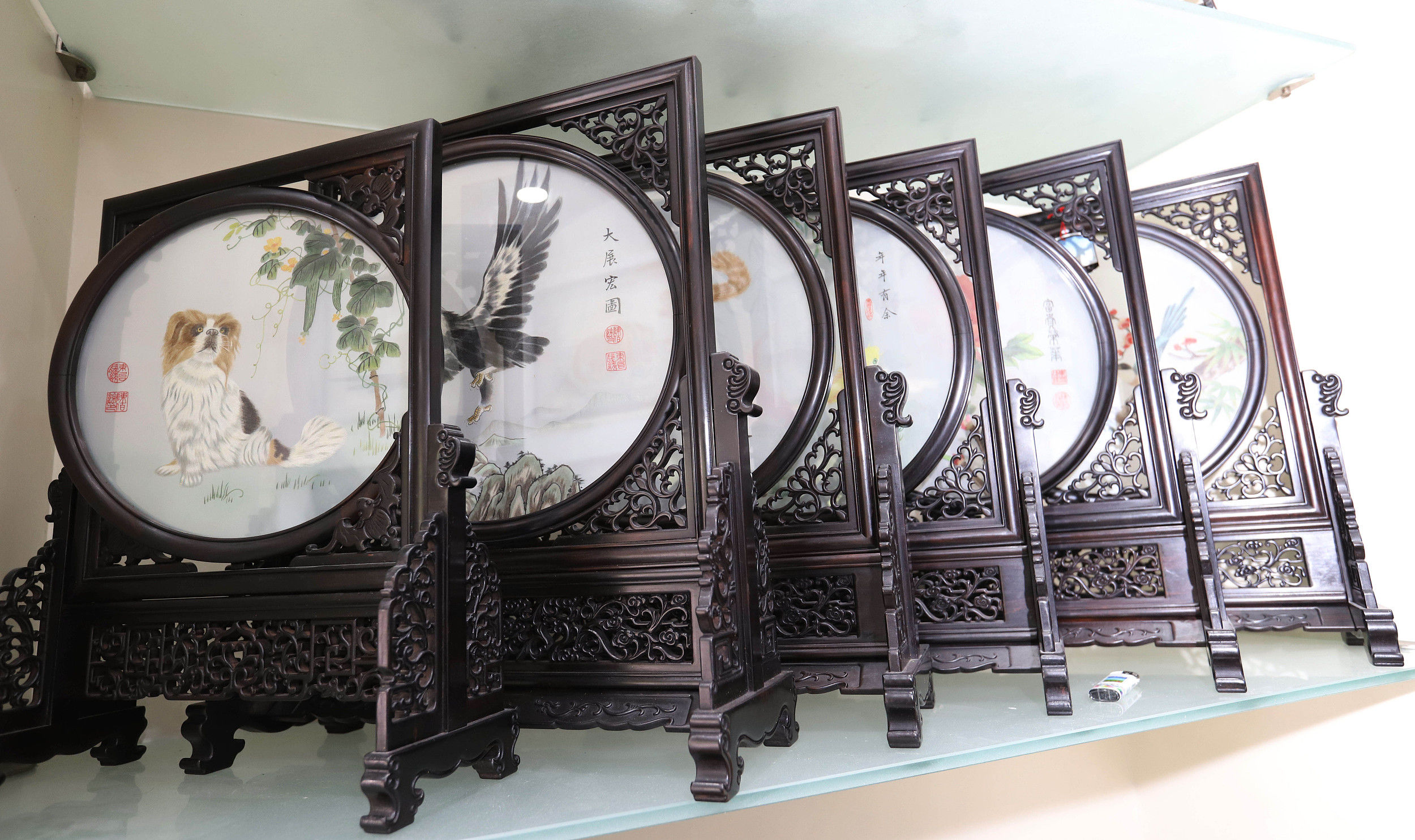
Lianyungang: Crystal Sculpture (Donghai Crystal Sculpture)
Crystal carving in the East China Sea has a long history. In the 1970s, the "Crystal Gravel Scraper" unearthed at Daxianzhuang Site in Shanzuokou, Donghai County was the first Paleolithic site discovered in Jiangsu Province. The craft mainly includes "round carving, relief carving, through carving, line carving, reverse carving, female carving, male carving and other techniques."
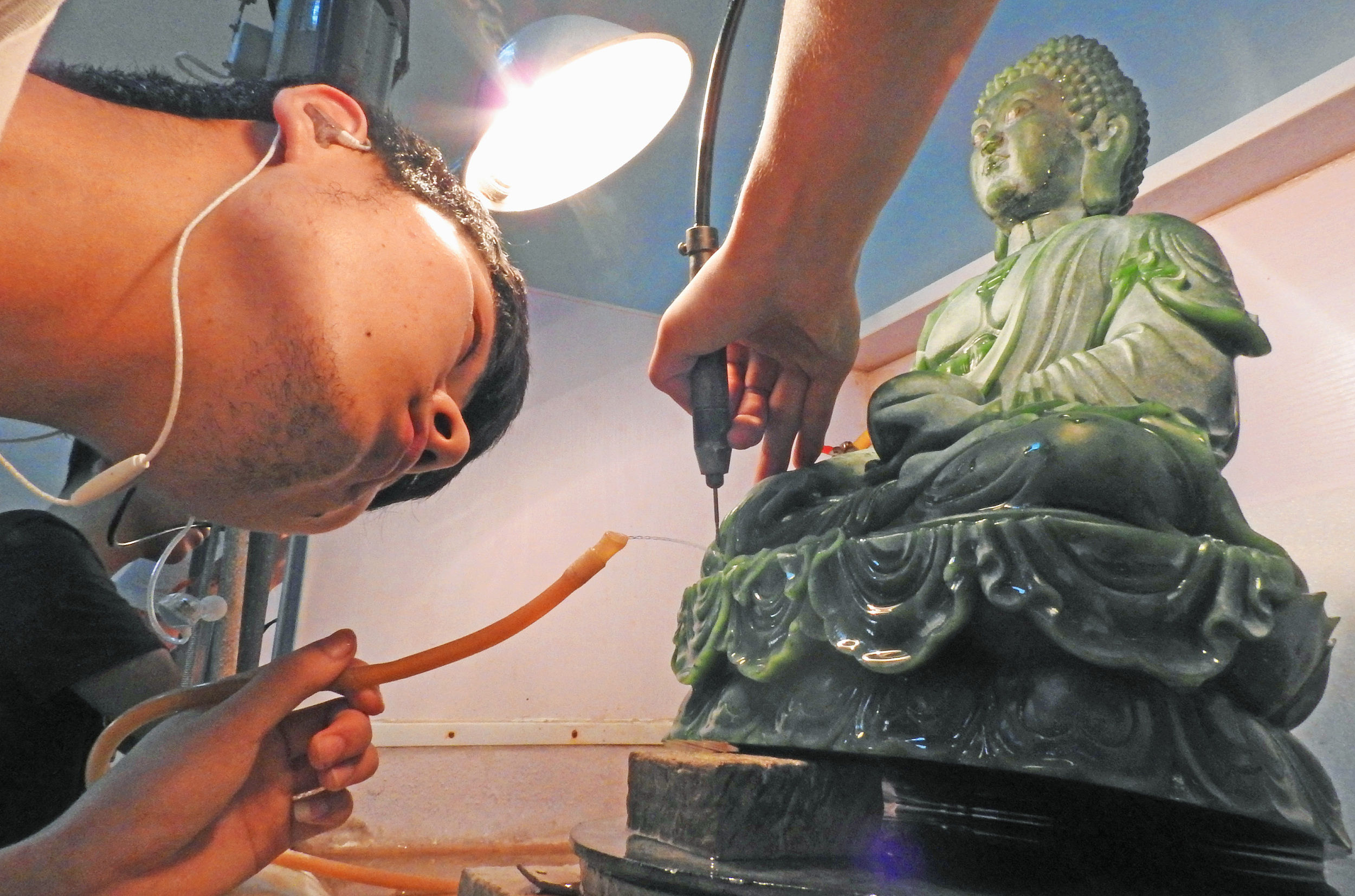
Based on rock crystal’s texture, size, shape, color, inclusions, water bladder and other characteristics that other jade does not have, Donghai Crystal Sculpture is characterized by its crystal clear, colorful modeling, exquisite and unique patterns and exquisite carving skills. It is constantly "recreated" by adopting modern cultural and artistic methods such as knowing and vivid, homophonic borrowing, painting and seal cutting combination, and inlay and embellishment, forming a unique national traditional style, which has artistic value of the times and has won successively. Donghai Crystal Festival ",the 8th Jiangsu" Crystal City Cup "Crystal Sculpture Grand Prix.
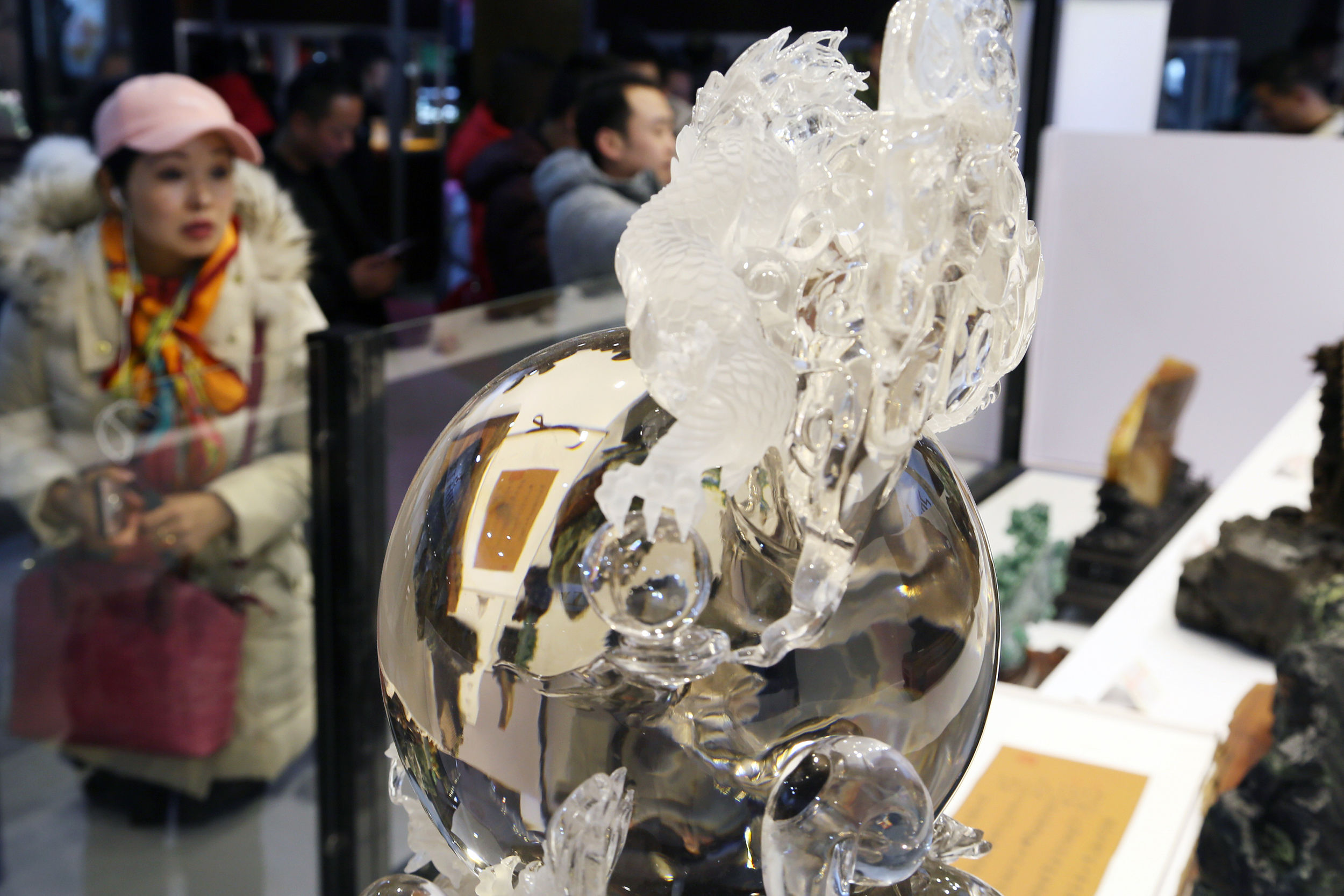
Yancheng: Porcelain Carving (Dafeng Porcelain Carving)
Porcelain carving is a traditional folk handicraft art with a long history in China, and there were methods of peeling and chiseling porcelain glaze in Qin and Han Dynasties. Since the Wei and Jin Dynasties, with the development of the ceramic industry, a large number of exquisite porcelains appeared. While enjoying porcelains, emperors, officials and some literati wanted to keep the ink of poems and inscriptions on them for permanent preservation, so artists at that time carved the outlines of poems and paintings on the porcelain blank before glazing with a straight knife, which formed the initial porcelain carving. According to legend, Emperor Qianlong of the Qing Dynasty often inscribed poems on his favorite porcelain to express his passion. In order to keep the imperial vestiges for a long time, court artists tried to carve Mo Bao on porcelain, which really produced porcelain carving.
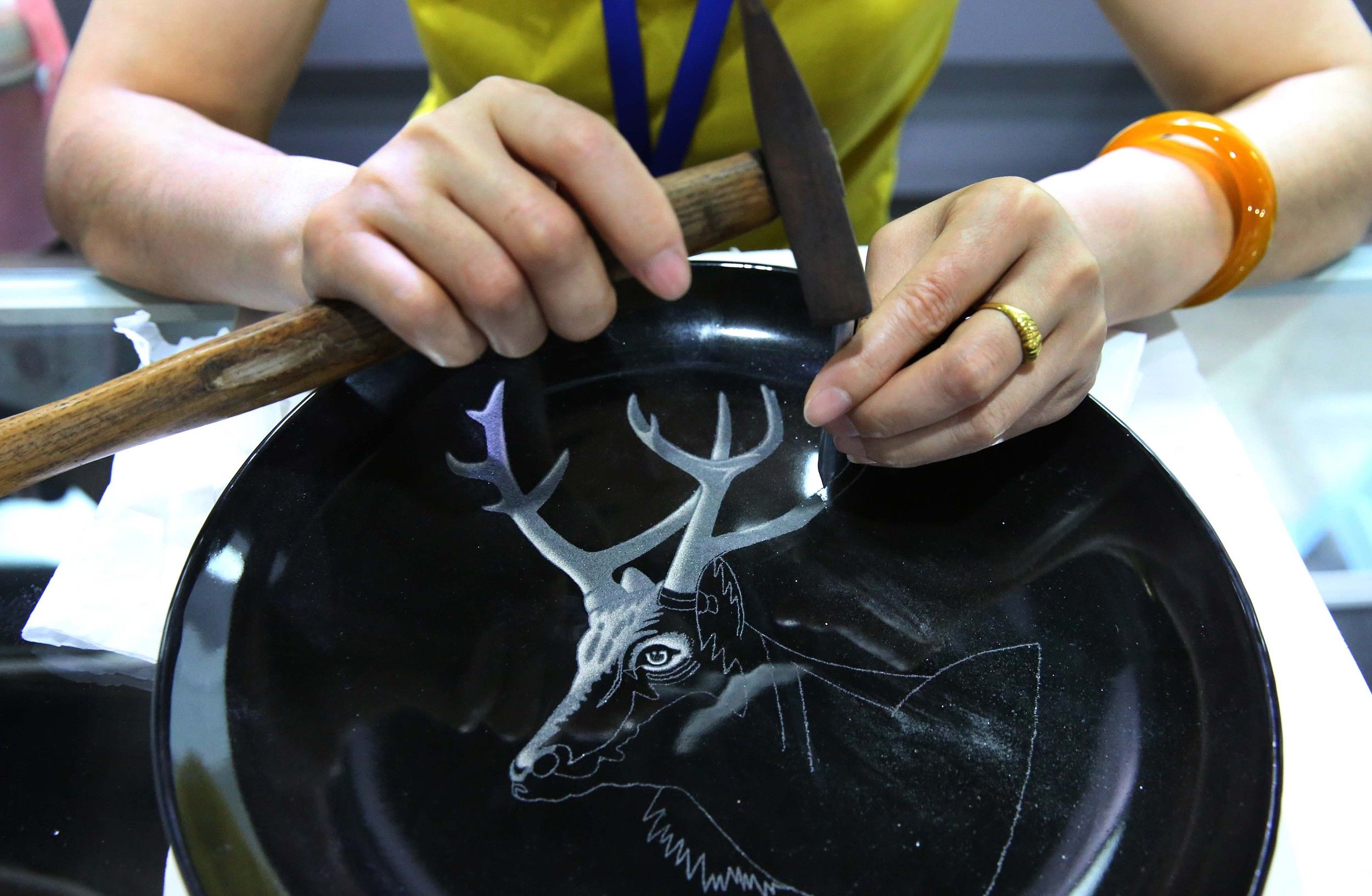
Dafeng porcelain carving is famous for its exquisite knife work, smooth lines, far-reaching artistic conception and vivid figure carving. It takes porcelain as the carrier, steel chisel and hammer as tools, and uses the unique beauty of porcelain itself and the porcelain collapse effect after carving, combining the carving techniques of different shades, different densities, uneven lengths, coarse and fine, virtual and real with the knife method, and vividly reproduces the object mechanism of the works on the surface of porcelain, which not only
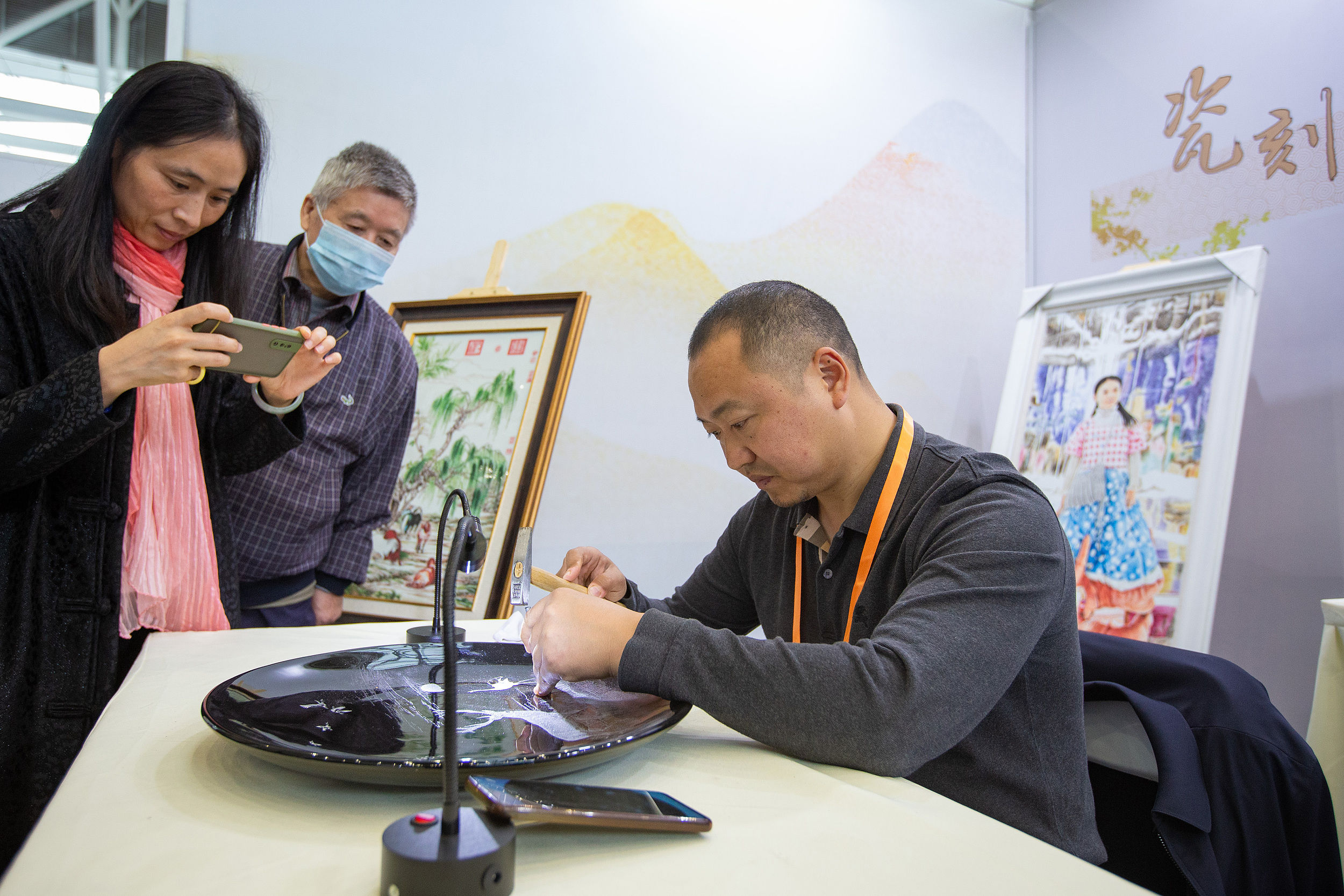
Yangzhou: Powder making skills (Xie Fuchun powder making skills)
Xie Fuchun fragrant powder shop was founded in the tenth year of Qing Daoguang (1830), and it is famous for its "fragrance, powder and oil". Its production technique is a special technique of picking the fragrance from flowers, injecting raw powder and oil, supplemented by other materials such as traditional Chinese medicine, and processing through multiple technological processes, so as to make fragrant powder, fragrant pieces and comb oil. This technique is very complicated and has profound cultural implications.
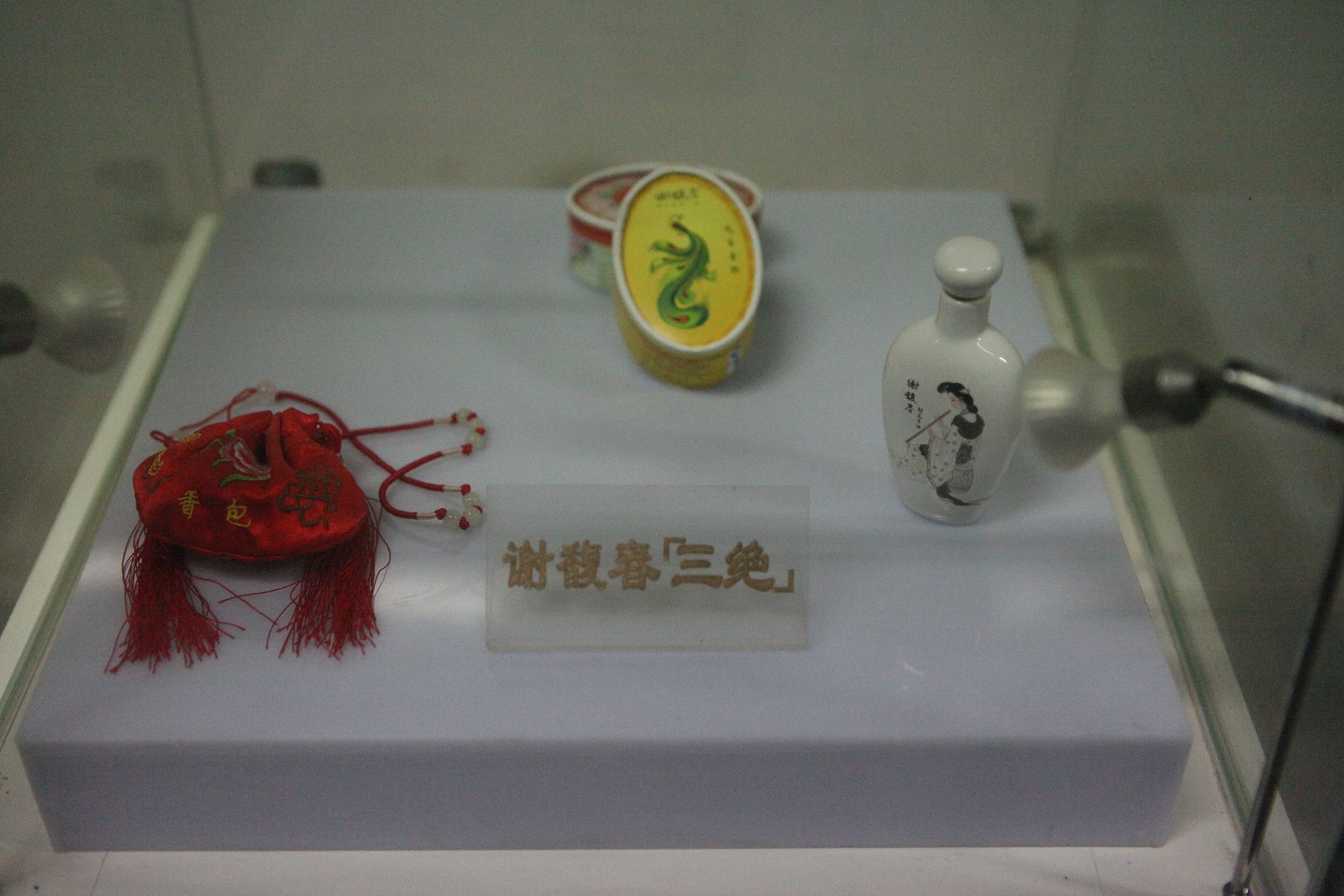
As early as 1915, Xie Fuchun’s duck egg powder and xiang zhu won the gold medal at the first Panama Pacific World Expo held in 1915. During the Republic of China, the development of Xie Fuchun’s powder making technique reached its peak. The inheritance, protection and development of Xie Fuchun’s production skills of "fragrance, powder and oil" are of great significance to the study of local craft history and even the history of China folk culture and beauty culture.
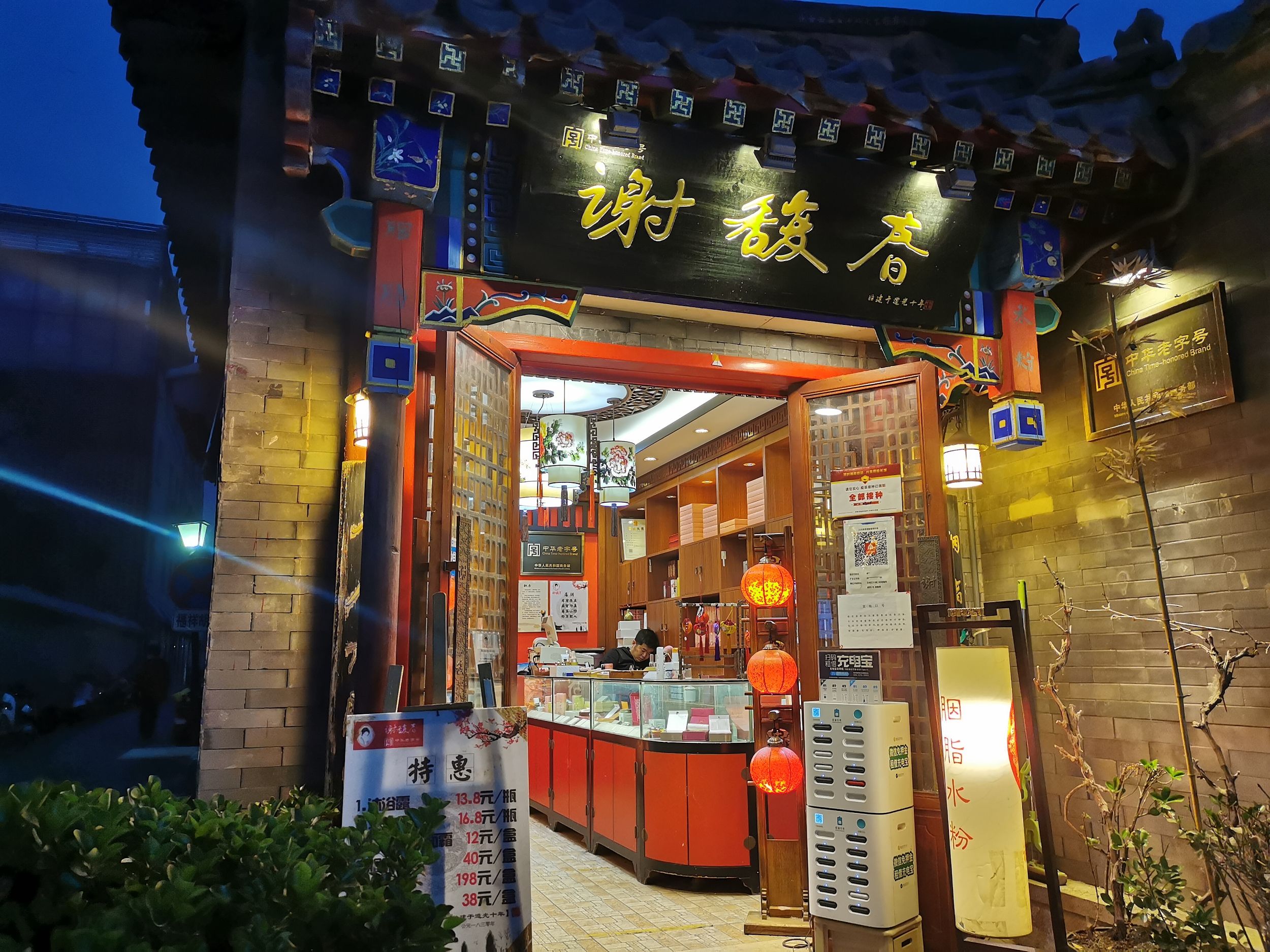
Xuzhou: Xuzhou fuyang food custom
"Fu Yang", that is, mutton after crouching, has been circulating in Xuzhou folks that "a bowl of mutton soup is crouched without a prescription from a fairy". It is believed that eating mutton in the dog days is a pioneering work of taking food as a treatment, which is to heat the body, sweat and detoxify, and drive away the poison and moisture in winter and spring.
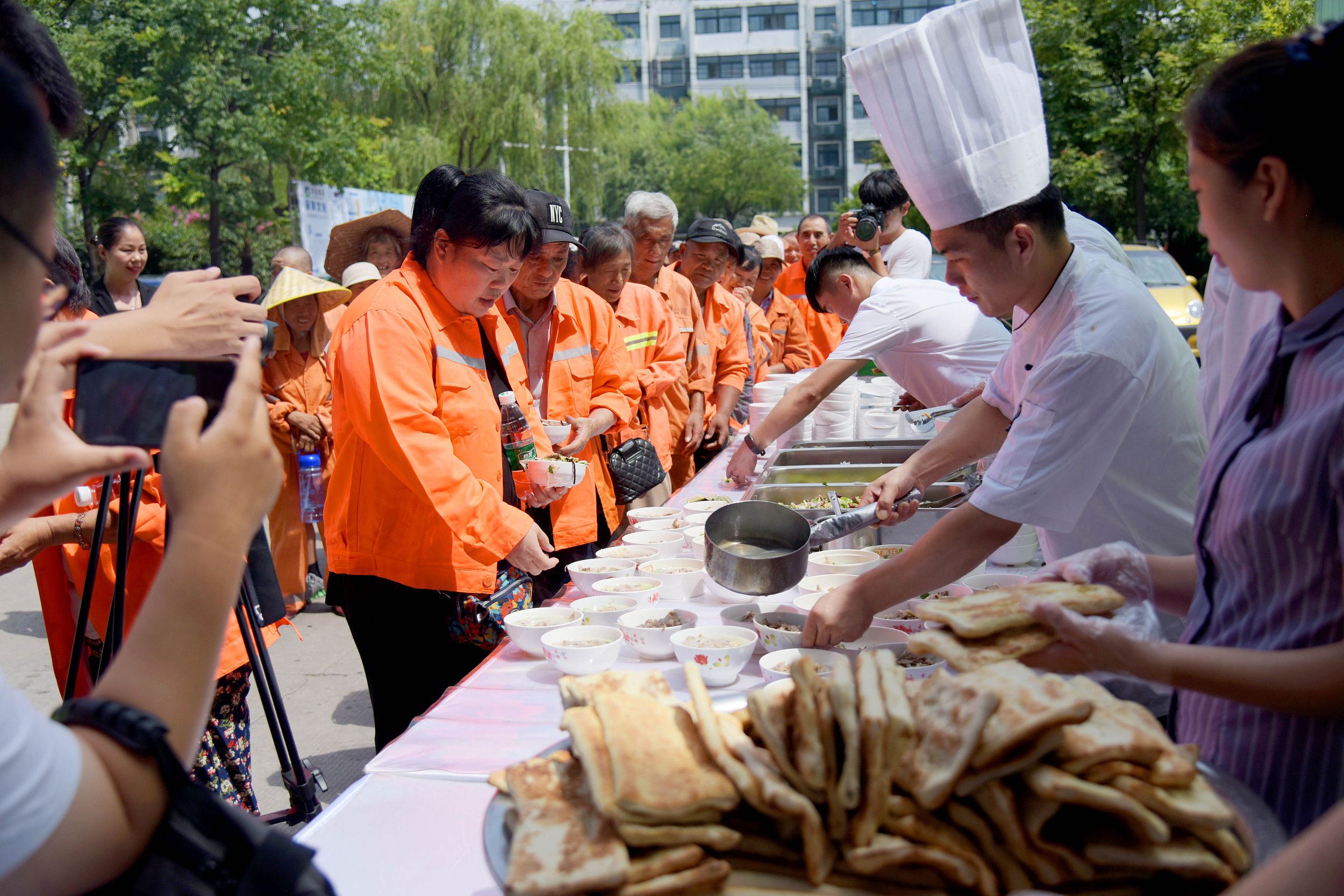
"Eating mutton in the dog days" has a long history in Xuzhou, which can be traced back to the Yao and Shun period. Xuzhou was called Pengcheng in ancient times, and Geng Keng was also called Peng Zu because of his seal in Pengcheng. Because Peng Zu was good at preparing delicious pheasant soup and giving it to Emperor Yao, he was sealed by Emperor Yao in Dapeng. Peng Zu’s famous dish "Sheep hide fish" and the roast mutton on the painted stone in Han Dynasty all show that Xuzhou people have a civilization history of thousands of years. In recent years, Xuzhou summed up and created the festival "Fu Yang Festival" on the basis of folk food customs, which started on the first day of the traditional lunar calendar every year and ended at the end of the last day, lasting for one month.
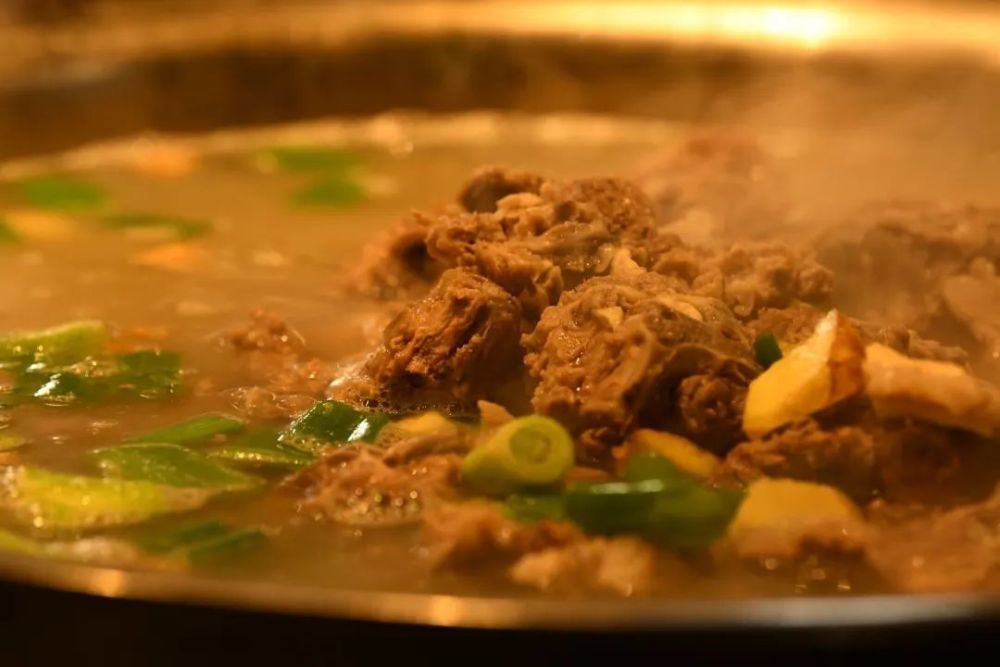
| The fifth batch of national non-legacy representative projects expansion projects in Jiangsu Province
*The expansion project of intangible cultural heritage representative projects refers to the project that has entered the last batch of national intangible cultural heritage projects before, but in the subsequent batch of declaration, due to the different reporting areas and units, the declared projects can only be regarded as the expansion list projects in the form of extended protection units.
Taizhou: Stone Lock (Hailing Stone Lock)
Stone locks are said to have originated from the military camp in China in the Tang Dynasty. Soldiers often use stone locks and stone burdens to exercise, and then spread to the people, and evolved into a traditional competitive event that integrates strength, skills and fitness.
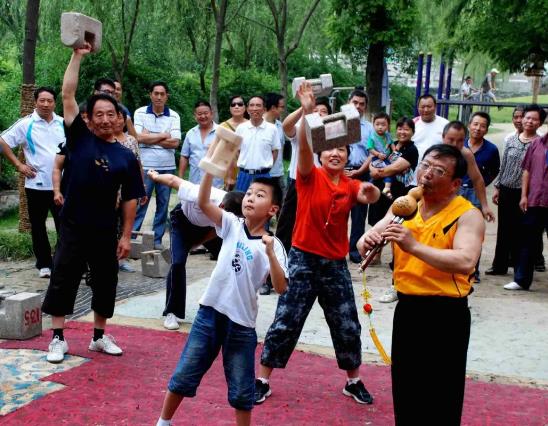
There are mainly snatch and swing lifting methods in Hailing’s stone dumping, and there are various kinds of colorful movements by throwing methods such as forward throwing, backward throwing, cross throwing and back throwing, and hand joint, finger joint, elbow joint, shoulder joint and head joint. Stone locks can be practiced by one person or by two people, and there are two or three people in the competition.
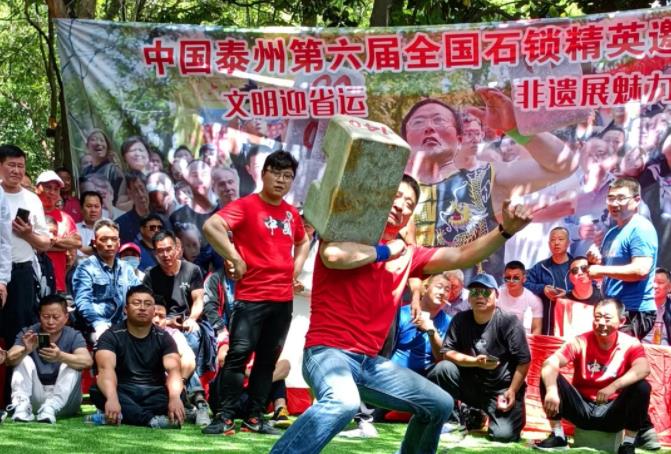
Changzhou: Suzhou embroidery (Changzhou random needle embroidery)
"Take the needle as the pen and the silk as the painters, seize the first voice of Suzhou embroidery, and climb the peak of embroidery art.. Everyone who sees it is praised as ‘ Shenzhen ’ 。” Liu Haisu, a famous painter, once had such an evaluation on the random needle embroidery. Different from the four famous traditional embroideries in China, the disorderly needle embroidery is a new embroidery art created by combining painting theory with embroidery theory, which was founded by Changzhou embroidery craftsman Yang Shouyu in the 1930s. Because of its unique embroidery method, it is called the fifth famous embroidery in China today.
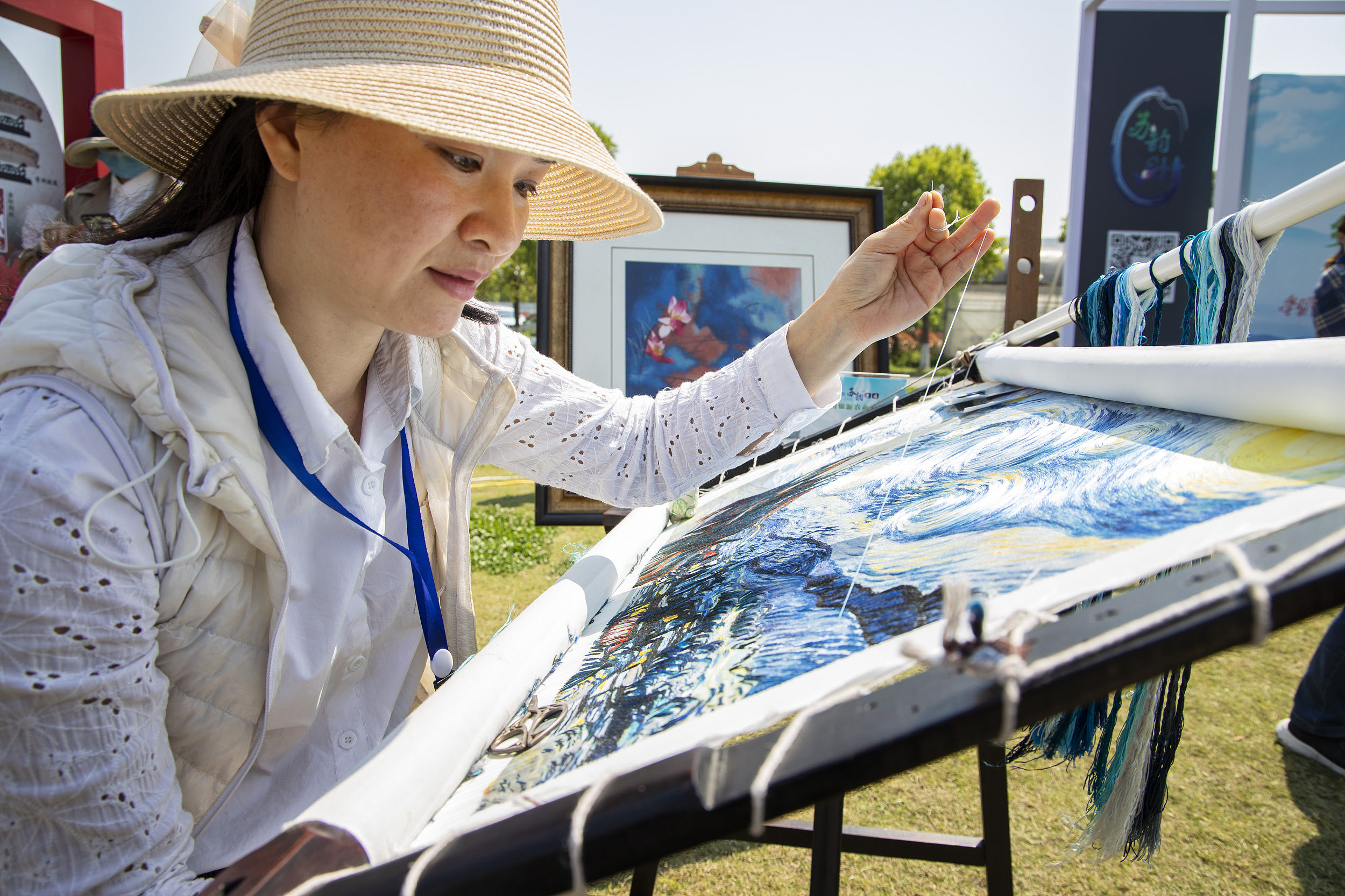
There is a description in Changzhou City Records: "Yang Shouyu’s disorderly needle embroidery art borrows needles to paint. All portraits, figures, landscapes, flowers, animals, birds and still life can be embroidered, especially figure embroidery, which is called ‘ Shenzhen ’ 、‘ Needle painting ’ " . The most striking feature of "random needle embroidery" is that it gets rid of the traditional operation method of "closely connecting its needles and arranging its lines" and does not stick to dogma, so that the author can freely express his thoughts and feelings. In 2007, random needle embroidery was selected into the first representative list of intangible cultural heritage in Jiangsu Province.
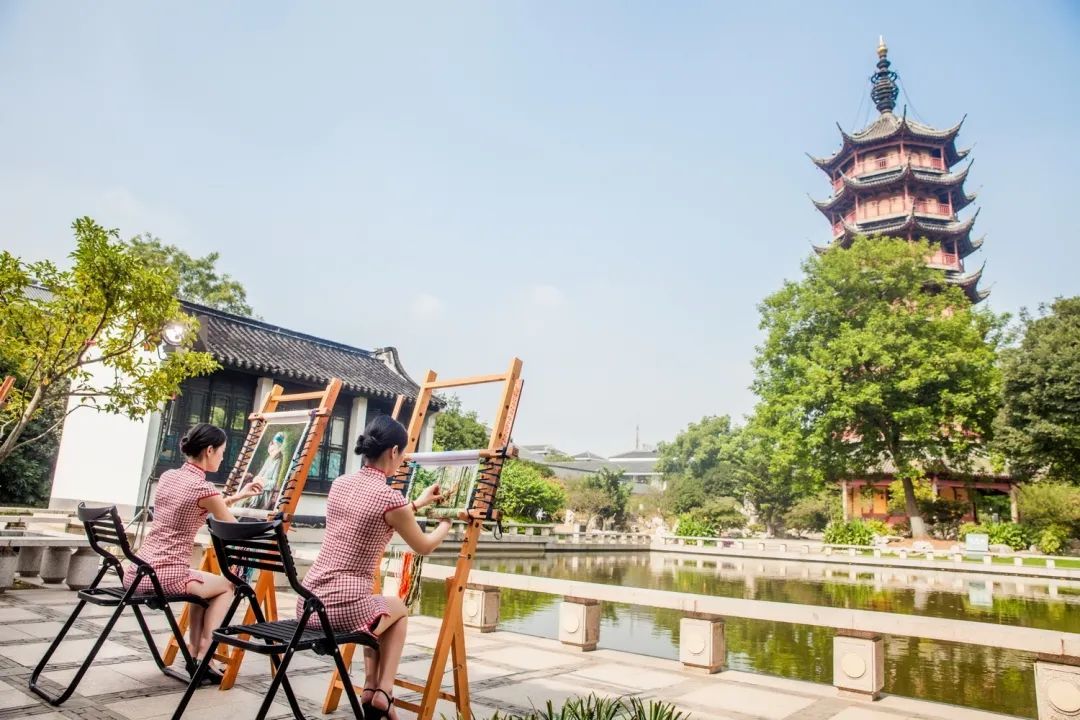
Nantong: Carpet weaving technology (Rugao silk carpet weaving technology)
Rugao silk carpet is a silk carpet craft with a history of more than 2,000 years, and it formed a local unique traditional manual craft in the late Ming and early Qing dynasties. Its uniqueness lies in the fact that it is the only tapestry artwork made by silk tapestry technology in China, which has typical cultural creativity value.

Tapestry of Tianshan Mountain in Xinjiang Hall of the Great Hall of the People
Rugao silk tapestry takes high-quality wild spun silk as raw material, and achieves special effects such as screen color separation, color matching, rhyme color and color jumping by a unique hand-knotting method, thus making the tapestry accurate in modeling, rich in expressive force, concise and thick in color, and fully showing the artistic characteristics of various schools of painters’ works, which is widely appreciated and valued by the art world.
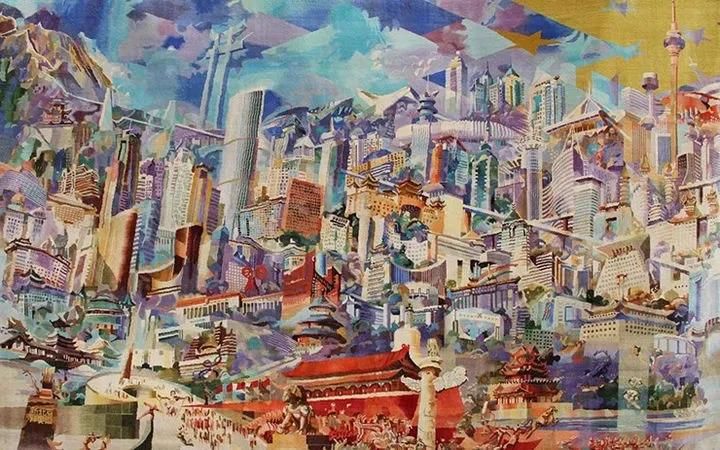
Rugao tapestry "Beijing Millennium Landscape Map"
Suqian: Traditional Distilled Liquor Brewing Technique (Yanghe Liquor Brewing Technique)
Yanghe liquor brewing technology began in the Tang Dynasty and developed in the Ming and Qing Dynasties. It has a history of more than 400 years and is a traditional distilled liquor brewing technology in China. Yanghe liquor has a unique brewing technique, which has been continuously improved in inheritance and development for hundreds of years and is still in full use today.
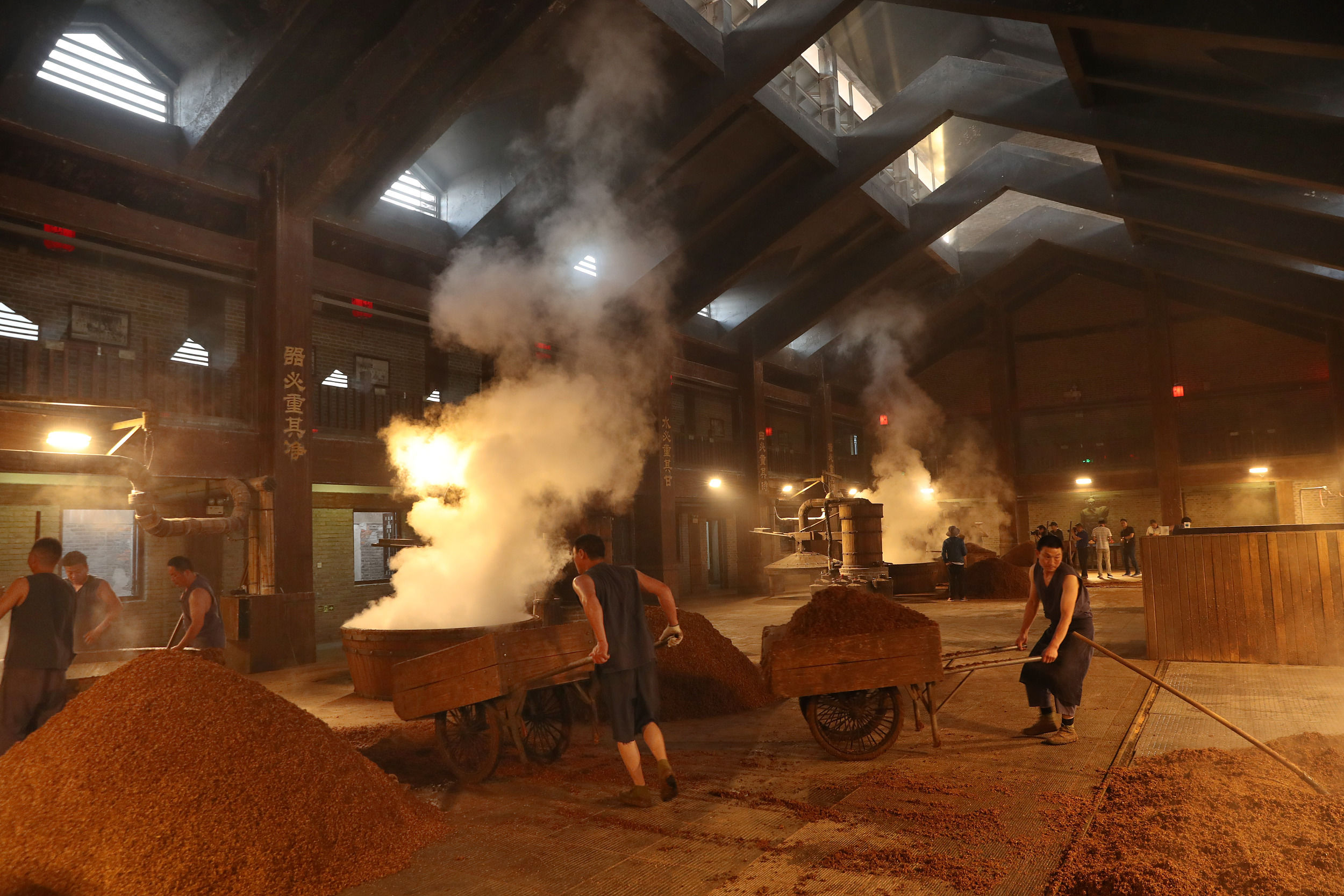
Yanghe wine is completed by four processes: koji-making, brewing, sealing and blending. Its main characteristics are slow brewing by hand, three low technologies and soft taste. There are "four slowness" in manual slow brewing, that is, slow manual, slow fermentation, slow storage and slow production. After hundreds of years of production practice, a unique production process of Laowu retort was created, and the process and wine style could not be copied in different places. From grain selection, koji-making, brewing, wine storage, manual slow brewing, "slow kung fu" achieves "soft taste in no hurry" The "three low" processes are low-temperature entry into the pool, low-temperature fermentation and low-temperature distillation, which are the core techniques of Yanghe wine brewing. Yanghe liquor has a soft taste, which has the characteristics of "sweet, soft, clean and fragrant", creating a new pattern of "taste-oriented" and being praised as the "soft originator" of China liquor.
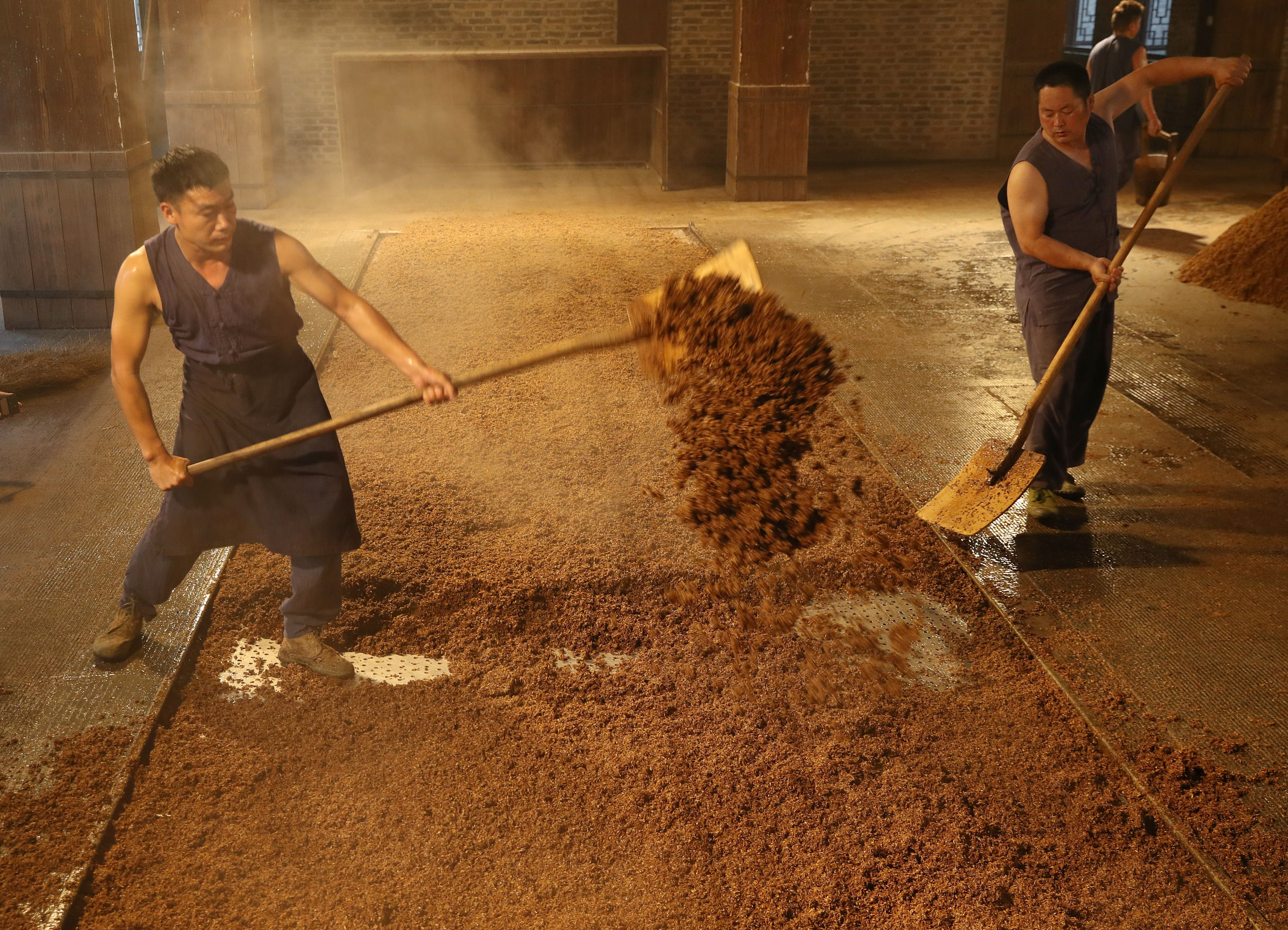
Nanjing: green tea making skills (yuhua tea making skills)
Shaped like a pine needle, it is tight, thin, round and straight, with beautiful front seedlings, green color, white dew, elegant aroma, fresh taste and bright green leaves … … Yuhua tea is one of the top ten famous teas in China. Nanjing green tea production has a long history, which is recorded in Lu Yu’s Tea Classic. Up to now, there is still an old trail of "Tea Trial Pavilion" behind the mountain of qixia temple. By the Qing dynasty, the scope of tea cultivation in Nanjing had expanded to the north and south of the Yangtze River. After the founding of New China, Yu Yongqi, a senior engineer of Sun Yat-sen Mausoleum, was responsible for the implementation of tea frying technology, which was successfully developed in the spring of 1959 and named "Yuhua Tea" to make the martyrs last forever.
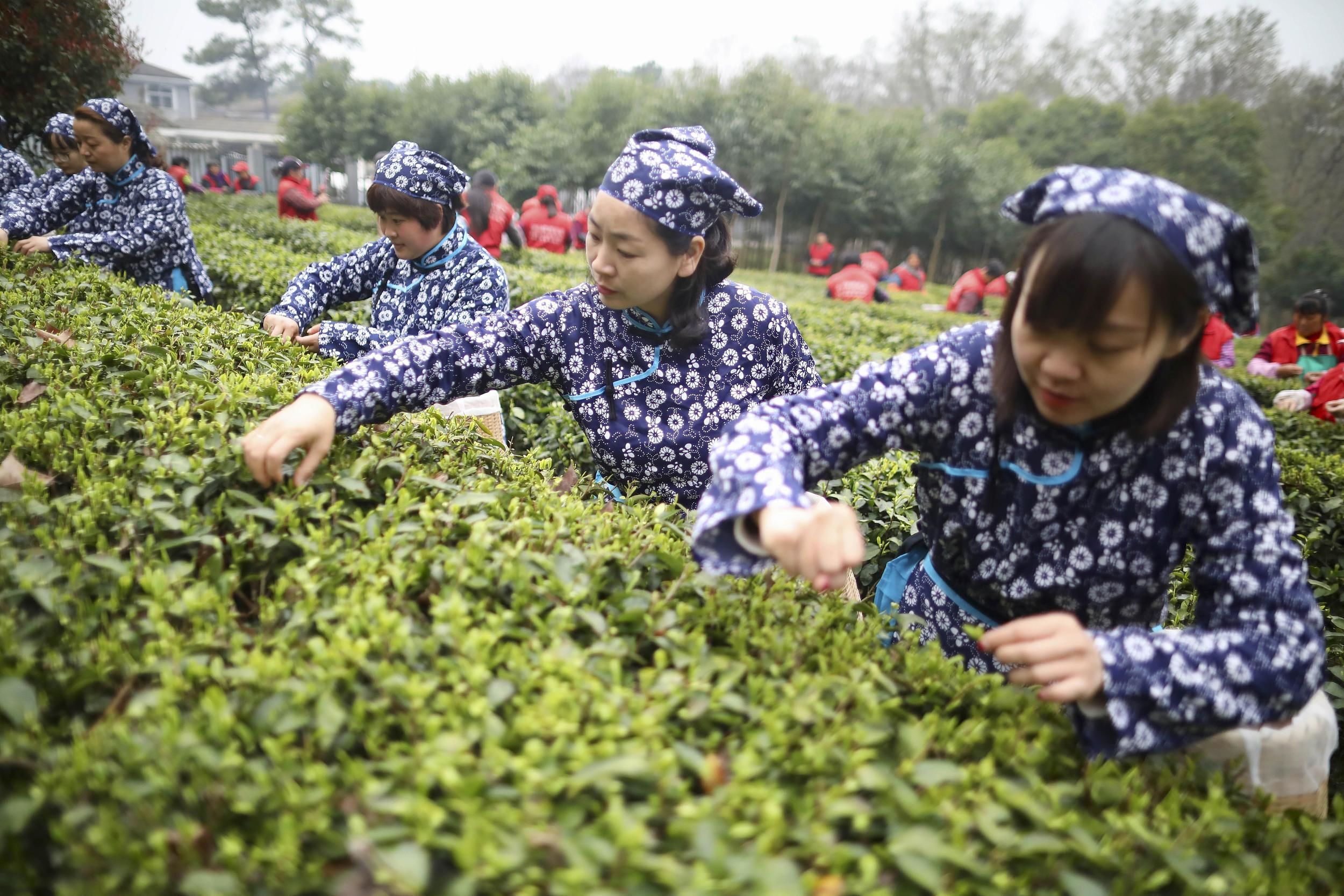
On the basis of inheriting the frying technology of ancient Chinese green tea, Yuhua tea has its own unique frying technology and incorporates new vitality, but the production process is complex, demanding and difficult. Nanjing has established a sound management organization while increasing investment, so that Yuhua Tea can be better inherited and developed.

Nanjing: vegetarian cooking skills (green willow house vegetarian cooking skills)
At the beginning of the last century, a vegetarian shop with only three or five tables and chairs opened in Taoyedu. The reason is that the vegetables are green in color, the willows are easy to live and grow, and the cloud "weeping willows are everywhere", hence the name "Green Willow House". With the change of wind and rain, Lvliu Jusu Restaurant has changed its name, changed its address and changed its chef several times. However, in the past 100 years, it has absorbed the essence of Chinese vegetarian culture and gathered the essence of vegetarian cooking from various factions to form an "old brand" of catering that integrates palace, temples, folk vegetarian food and exquisite halal dishes.
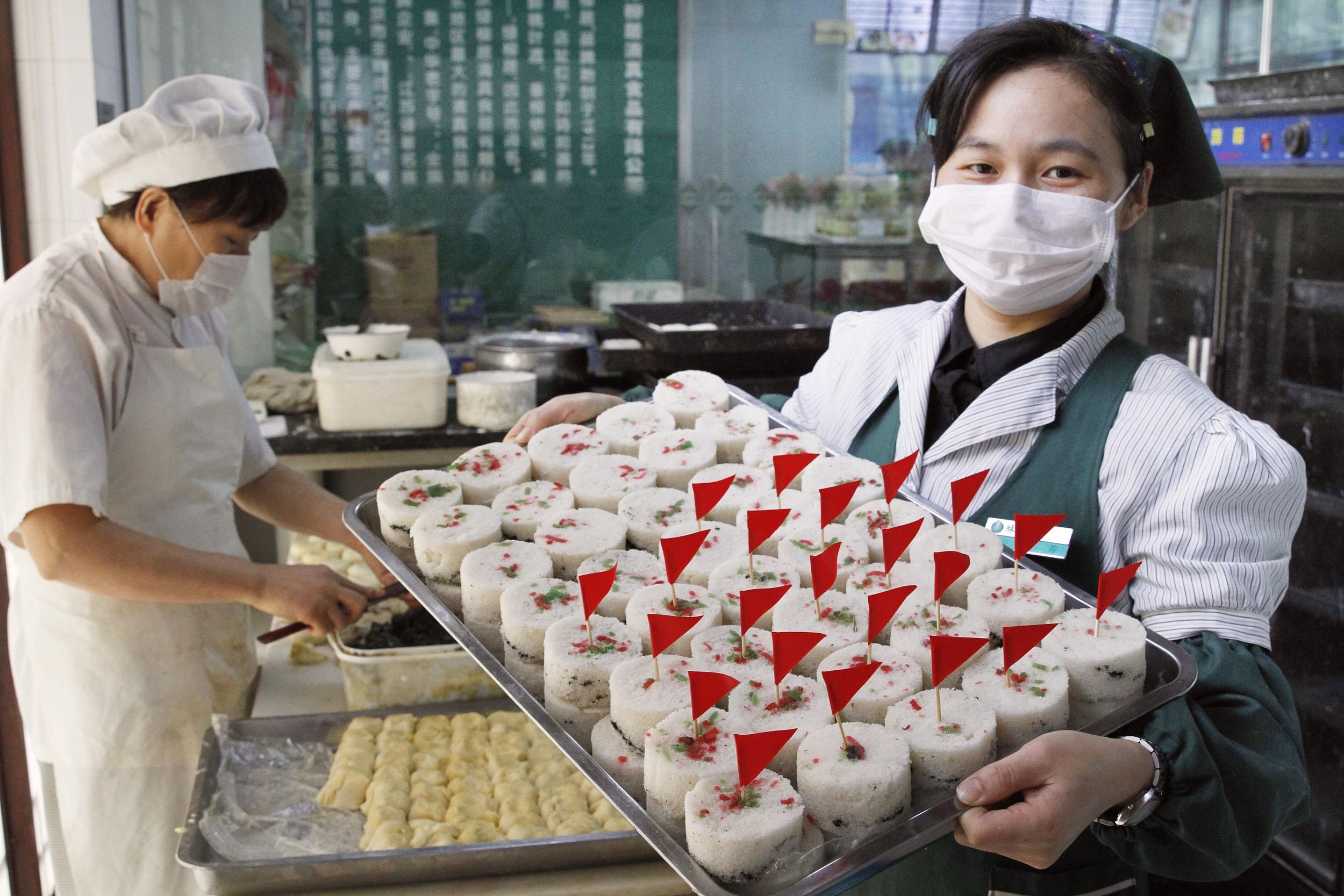
The raw materials of Lvliuju vegetarian cooking are nothing more than "bean products, gluten, bamboo shoots, mushrooms" and all kinds of vegetables, but after careful cooking and continuous innovation by the inheritors, it has finally become a vegetarian dish with good color, fragrance, taste and shape, which is not only vivid in image, but also similar in taste. In the past hundred years, the vegetarian diet in Green Willow House has attracted many people to taste it and become a symbol of vegetarian culture in Nanjing, a famous historical and cultural city.
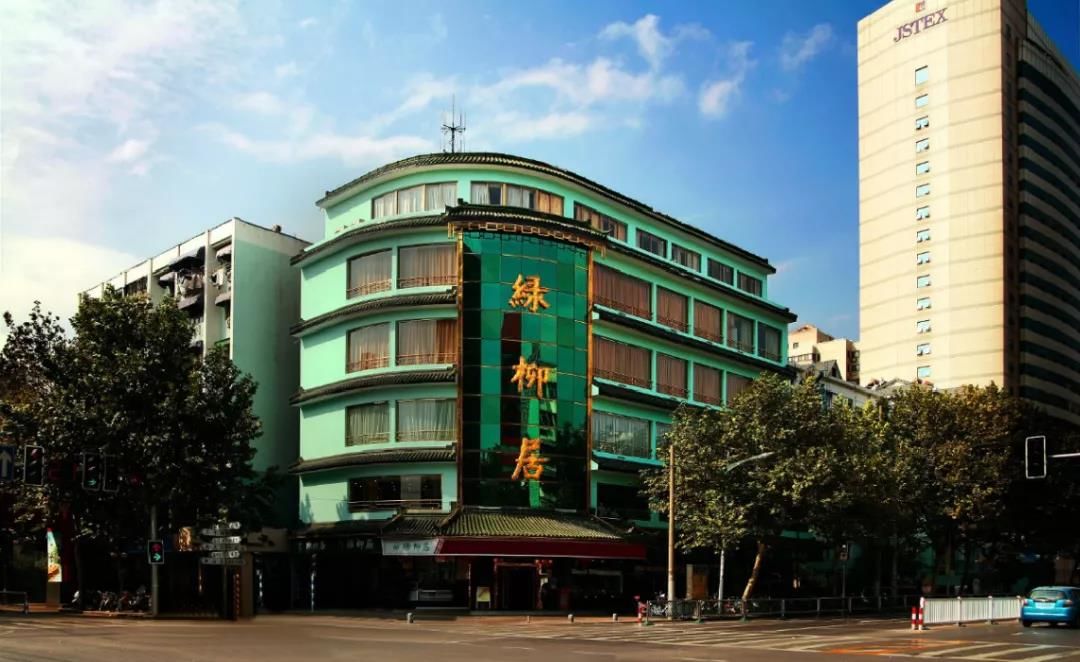
Nantong: Traditional Chinese Medicine Preparation Method (Wang Baobao’s Akamaru Production Technique)
Wang’s Bao Akamaru is a traditional Chinese patent medicine made by Wang Yiqing, the 17th generation descendant of Nantong Wang’s family of traditional Chinese medicine, in Daoguang period of Qing Dynasty. In 1956, his grandson, Mr. Wang Mianzhi, a famous TCM doctor and master of traditional Chinese medicine in Nantong, presented the secret recipe to the country, and the method was handed down by one of the predecessors of essence pharmaceutical Group — — Nantong Pharmaceutical Factory produces exclusively, and its technological formula has been listed in the national confidential formula list for more than 60 years.
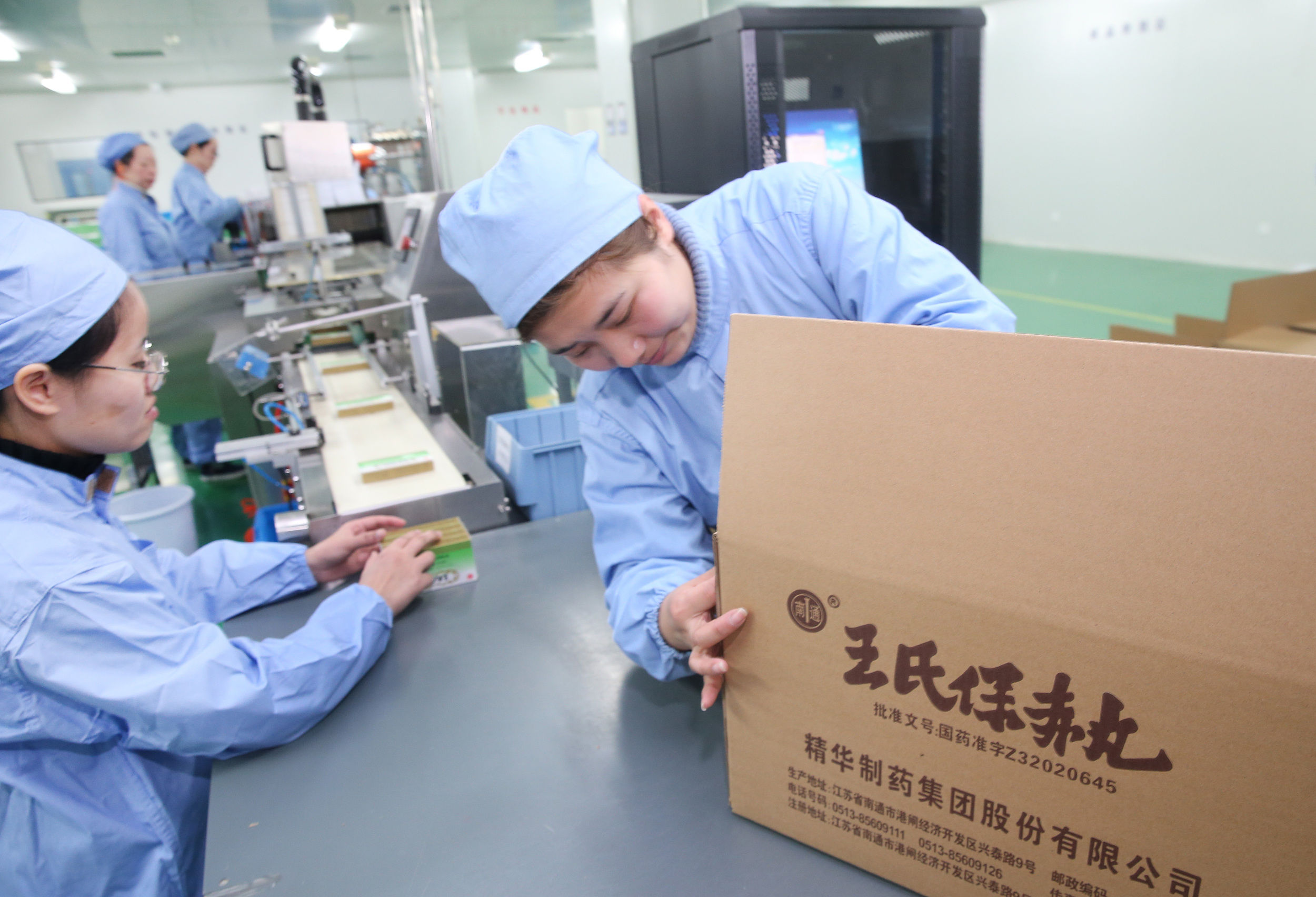
Wangshibao Akamaru is a pill made of all natural Chinese medicinal materials. The pill shape is as small as rapeseed, and the pills are symmetrical and round, and the luster is as bright as pearls. It has a unique effect in treating gastrointestinal diseases such as weakness of spleen and stomach, anorexia, diarrhea and constipation. In 1983, this famous medicine won the National Quality Silver Award, and then Wang’s Akamaru production skills entered the ranks of the intangible cultural heritage of the province.
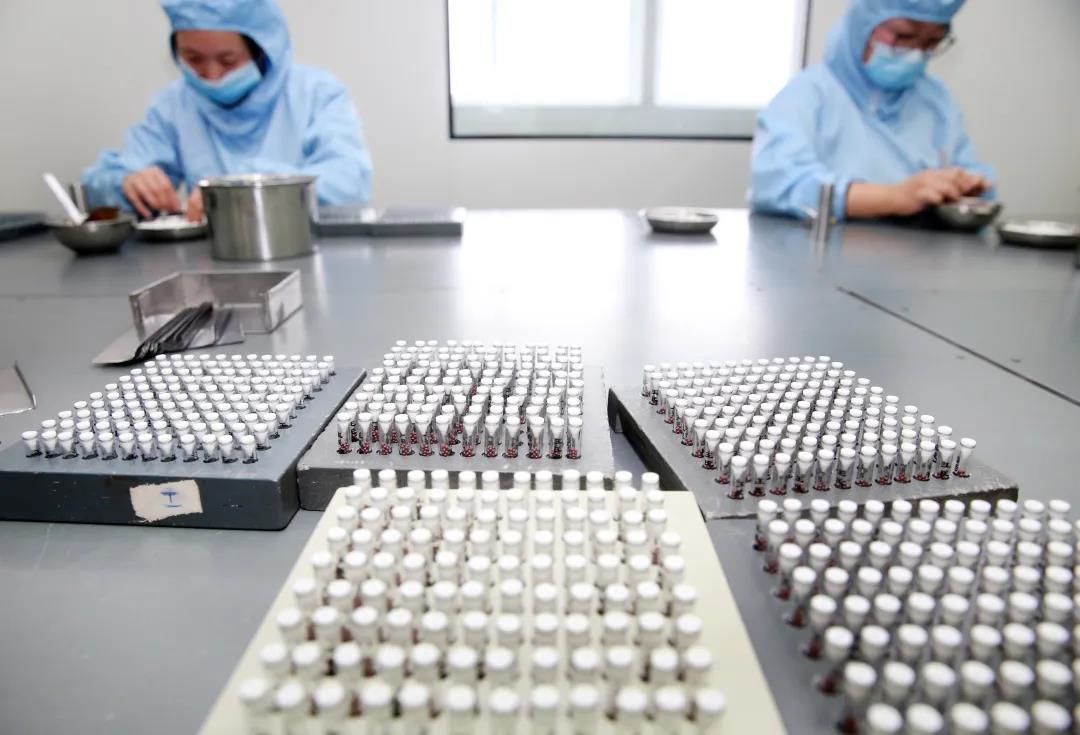
Suzhou: Temple Fair (Shengtang Temple Fair)
The temple fair of Shengtang, known as the Spring Festival, originated in the early Jiajing period of Ming Dynasty, and is a folk cultural activity circulating in Yangcheng Lake area, mainly focusing on the three days from March 26th to 28th of the lunar calendar every year (the legend is the birthday of Dongyue the Great).
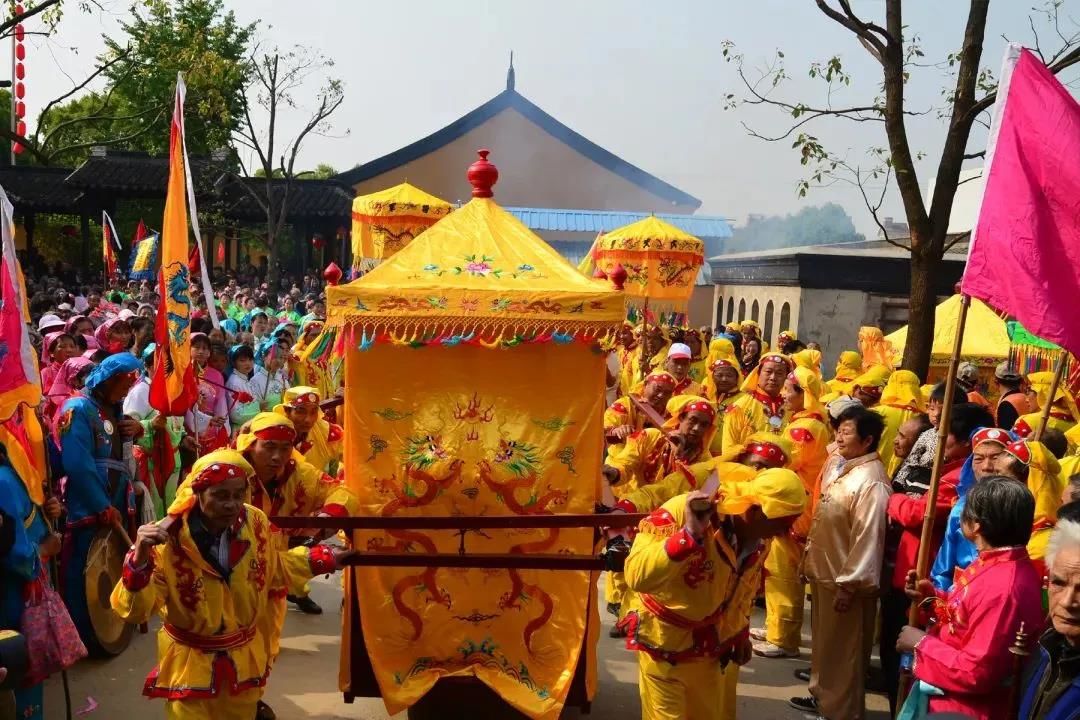
The temple fair in Shengtang is large-scale. During the temple fair every year, people in Yangcheng Lake Town and its surrounding areas will spontaneously organize folk teams. After offering sacrifices to the local land gods, they will carry out Lu Yun, valiant generals and other temple gods in eight-lift sedan chairs, and walk slowly while playing strings. This folk cultural activity was listed in the municipal intangible cultural heritage list in June 2013 and the provincial intangible cultural heritage list in January 2016, which is of positive significance for inheriting the roots of national culture and enhancing the self-confidence of national culture.
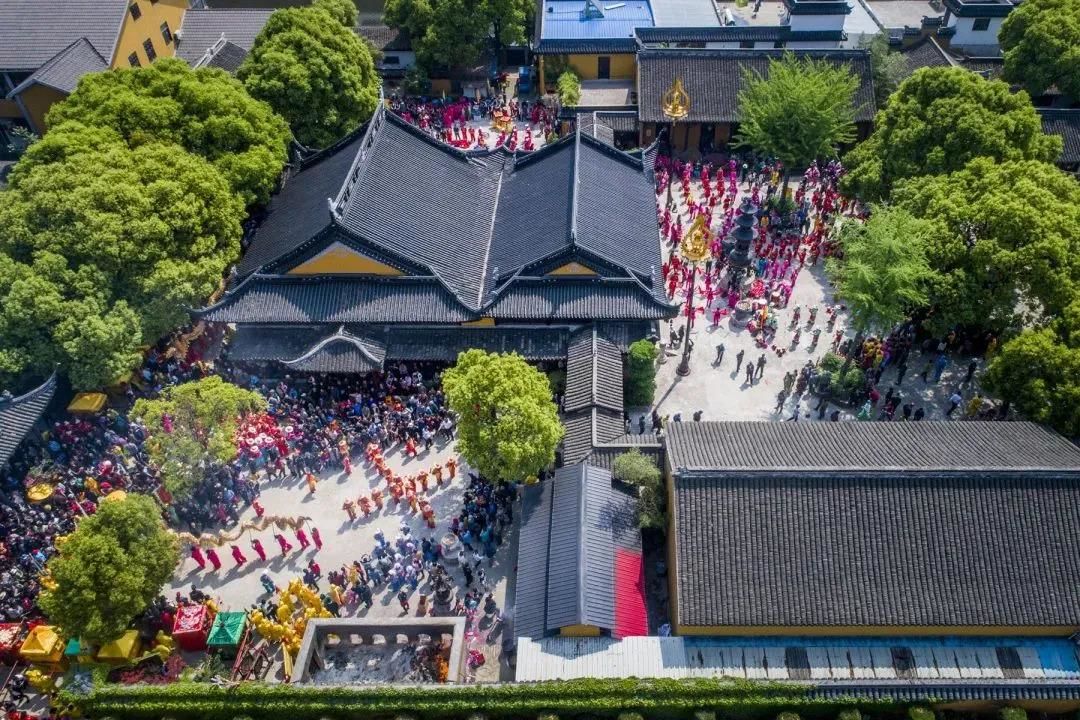
(My Su Net is integrated from Huaihai Evening News Wisdom Taixing Sucheng Cultural Center Dongtai Daily Happiness Dongtai Yancheng Released Non-legacy Yangzhou Xuzhou Released Xuzhou Wenguang Tourism Bureau Official Weiwei Hailing Taizhou Hailing Cultural Center Wenlv Changzhou Rugao Released Suqian Released Yanghe Net Local Records Jiangsu Traditional Chinese Medicine Nantong Released Suzhou Non-legacy Pictures and videos are all from network editors/Moka Fang)
